democracynow.org
Stories:

"Heil Victory!" Alt-Right Groups Emboldened by Trump's Election & Chief Strategist Steve Bannon
A video leaked Monday from a self-proclaimed "alt-right" conference that took place over the weekend in Washington, D.C., shows hundreds gathering to celebrate Donald Trump’s victory and raising their arms in the traditional Nazi salute and saying "Heil victory!" Leaders of the alt-right movement have been emboldened since Trump’s election, particularly since he named Steve Bannon to become his chief strategist after first being his campaign manager. Bannon is the former head of the right-wing news outlet Breitbart Media. We speak with Deborah Lipstadt, Dorot professor of Holocaust studies at Emory University, who says Bannon’s appointment is "the most depressing of almost anything I’ve heard thus far." Lipstadt is also the subject of a feature film now in theaters called "Denial," which is based on a court case in which she was sued by a leading Holocaust denier.
TRANSCRIPT
This is a rush transcript. Copy may not be in its final form.
JUAN GONZÁLEZ: We begin today with a look at the growing movement in the United States that calls itself the alt-right. On Monday, a video was leaked from an alt-right conference that took place over the weekend in Washington, D.C., where hundreds gathered to celebrate Donald Trump’s victory. In the video, alt-right leader Richard Spencer recites Nazi propaganda in original German, as some attendees raise their arms in the traditional Nazi salute.
RICHARD SPENCER: Heil Trump! Heil our people! Heil victory! To be white is to be a striver, a crusader, an explorer and a conqueror. We build. We produce. We go upward. And we recognize the central lie of American race relations. We don’t exploit other groups. We—we don’t gain anything from their presence. They need us, and not the other way around. America was, until this past generation, a white country, designed for ourselves and our posterity. It is our creation, it is our inheritance, and it belongs to us.
JUAN GONZÁLEZ: That’s alt-right leader Richard Spencer speaking over the weekend. When asked by The New York Times about Donald Trump, Spencer said, quote, "I do think we have a psychic connection, or you can say a deeper connection, with Donald Trump in a way that we simply do not have with most Republicans," unquote.
Leaders of the alt-right movement have been emboldened since Trump’s election, particularly since he named Steve Bannon to become his chief strategist after first being his campaign manager. Bannon is the former head of the right-wing news outlet, Breitbart Media.
Well, for more, we’re joined by Deborah Lipstadt, the Dorot professor of Holocaust studies at Emory University. When asked about Bannon’s appointment, she told Politico, quote, "I find that the most depressing of almost anything I’ve heard thus far." Lipstadt is also the subject of a feature film, now in theaters, called Denial, which is based on a court case in which she was sued by a leading Holocaust denier.
Welcome to Democracy Now!, Professor Lipstadt. Professor Lipstadt, can you hear me? I think we’re having a little problem with the connection with Professor Lipstadt. We’ll take a break and come back.
[break]
JUAN GONZÁLEZ: "Can’t Go Home" by Weyes Blood. Welcome back to Democracy Now!, democracynow.org, The War and Peace Report. I’m Juan González. Deborah Lipstadt is the Dorot professor of Holocaust studies at Emory University. The film Denial, based on the court case in which she was sued by a leading Holocaust denier, is currently in theaters. She joins us now to discuss the growing alt-right movement.
Welcome to Democracy Now!, Professor Lipstadt.
DEBORAH LIPSTADT: Thank you very much. Thank you for having me.
JUAN GONZÁLEZ: Well, tell us about your concerns, especially, first, about the appointment of Donald Trump of Steve Bannon as his chief strategist.
DEBORAH LIPSTADT: Let me say at the outset that I don’t know Steve Bannon personally. I know very little of him personally. So I have no idea if he is personally an anti-Semite or racist or any of his personal feelings. But what I do know is that he has facilitated the rise of alt-right, or maybe not the rise, but the entry of alt-right into more of the mainstream through Breitbart News. And on top of that—I mean, he has a longer record than just that, but I’ll point to one example, which was the final ad that the Trump campaign put out, and he was campaign either manager or strategist, but he was one of the—he was the top person at the campaign. And the final ad, with Donald Trump’s voice in the background talking about global interests, taking control of our economy, "they work for people who don’t care about you," "they have their own interests," you saw three—four people on the screen. You saw Hillary Clinton, and then you saw George Soros. You saw Janet Yellen, and you saw Lloyd Blankfein. Soros, the financier—
JUAN GONZÁLEZ: And, Professor Lipstadt, if I can for a second, let’s go to that ad. We have a clip of it here so that our viewers and listeners—
DEBORAH LIPSTADT: OK.
JUAN GONZÁLEZ: —can see what you’re and hear what you’re talking about. This is that ad.
DEBORAH LIPSTADT: OK, great.
DONALD TRUMP: The establishment has trillions of dollars at stake in this election. For those who control the levers of power in Washington and for the global special interests, they partner with these people that don’t have your good in mind. The political establishment that is trying to stop us is the same group responsible for our disastrous trade deals, massive illegal immigration, and economic and foreign policies that have bled our country dry. The political establishment has brought about the destruction of our factories and our jobs as they flee to Mexico, China and other countries all around the world. It’s a global power structure that is responsible for the economic decisions that have robbed our working class, stripped our country of its wealth and put that money into the pockets of a handful of large corporations and political entities.
JUAN GONZÁLEZ: That was the ad, and it was an extended ad, not your normal 15-second or 30-second commercial. Your response to that ad, Professor Lipstadt? Well, we’re having problems with her again. But in response to the ad, Jonathan Greenblatt, the CEO of the Anti-Defamation League, tweeted, quote, "Whether intentional or not, the images and rhetoric in this ad touch on subjects that anti-Semites have used for ages. This needs to stop. In the final days before the election, tensions are extremely high. It’s a time when all candidates need to be especially responsible and bid for votes by offering sincere ideas and policy proposals, not by conjuring painful stereotypes and baseless conspiracy theories." That was the Anti-Defamation League. Professor Lipstadt—we’re again having problems with the connection to Emory University, and we’d like to go to this other clip of Howard Dean, who is running for chair of the Democratic National Committee, a position he’s held previously. He spoke with Canada’s CTV about Donald Trump and his picks for his senior officials.
HOWARD DEAN: He’s a complicated guy. He appoints a reasonable person, who’s much more conservative than I am, but somebody you can talk to, to his chief of staff. And then his senior adviser is a Nazi. I mean, what—you know, what do you do with this?
EVAN SOLOMON: OK, hang on. Slow down. Well, this is interesting. You’re talking about Reince Priebus—
HOWARD DEAN: Right.
EVAN SOLOMON: —who is the chairman of the Republican national party.
HOWARD DEAN: Right.
EVAN SOLOMON: Right? He’s now his chief of staff.
HOWARD DEAN: Right.
EVAN SOLOMON: Steve Bannon, who ran something called Breitbart News—
HOWARD DEAN: Right, which is a far-right, anti-Semitic publication.
EVAN SOLOMON: You called him a Nazi?
HOWARD DEAN: Well, he’s anti-Semitic, he’s anti-black, and he’s anti-women.
EVAN SOLOMON: He’s openly said, "I’m part of the, quote-unquote, 'alt-right.'"
HOWARD DEAN: That’s right.
EVAN SOLOMON: He is Donald Trump’s chief strategist. What does that tell you?
HOWARD DEAN: It makes me very nervous.

Immigrants Fighting for Sanctuary Cities & Campuses to Protect Millions from Trump Deportation Push
There is growing resistance to Trump’s vow to detain and deport millions of people from the United States. Mayors from New York to Chicago to Seattle say they will refuse to cooperate even as Trump promises to cut funds from so-called sanctuary cities. Meanwhile, the movement is growing for "sanctuary campuses." During his campaign, Trump also said he would reverse President Obama’s executive orders, including DACA, Deferred Action for Childhood Arrivals, which has shielded 750,000 young people from deportation. We are joined by Denise Vivar, a member of the first undocumented student club at the City University of New York, or CUNY. She drafted the petition for Lehman College to be a sanctuary campus. We also go to Philadelphia to speak with Olivia Vazquez, a recipient of DACA and a youth organizer at the immigrant rights group Juntos, and with Miguel Andrade, an immigration paralegal who has been working with the Philadelphia Mayor’s Office to declare Philadelphia a sanctuary city, or Fourth Amendment city.
TRANSCRIPT
This is a rush transcript. Copy may not be in its final form.
JUAN GONZÁLEZ: This is Democracy Now!, democracynow.org, The War and Peace Report. I’m Juan González, in for Amy Goodman. Amy is on assignment. We turn now to look at the growing resistance to president-elect Donald Trump’s vow to detain and deport millions of people from the United States. During the presidential campaign, Trump vowed to end sanctuary cities that protect undocumented immigrants.
DONALD TRUMP: Block funding for sanctuary cities. We block the funding. No more funds. We will end the sanctuary cities that have resulted in so many needless deaths. Cities that refuse to cooperate with federal authorities will not receive taxpayer dollars and we will work with Congress to pass legislation to protect those jurisdictions that do assist federal authorities.
JUAN GONZÁLEZ: Since his election victory, Trump has maintained his promise, telling 60 Minutes he will immediately deport some 3 million people once in office. But, mayors from New York to Chicago to Seattle say they will refuse to cooperate. This comes as a Mexican immigrant who is the father of three U.S.-born children has sought sanctuary from deportation in a Philadelphia church and called on President Obama to stop his deportation and others. The day before he was slated to be deported, Javier Flores made the choice to go into sanctuary. Before then he had been detained for 16 months in the Pike County Detention Center. He says he was charged with reentering the country after he received bad legal advice about how to regularize his residence status. In this video interview shared with Democracy Now!, Flores sits with his five-year-old son, Junior, who saw him arrested during the home raid that sent him to detention, and was recently diagnosed with PTSD.
JAVIER FLORES: [translated] This is all very sad. He was recently diagnosed with PTSD by the time I was detained at the Pike County Detention Center, and my oldest daughter, she had to get therapy for 10 days. I have three U.S. citizen children. I made the decision to go into sanctuary for my children and for my family.
JUAN GONZÁLEZ: Meanwhile, students at as many as 100 colleges and universities across the country held protests last week demanding their schools become sanctuary campuses. Trump vowed to immediately deport up to 3 million people. During his campaign, Trump also said he’d reverse President Obama’s executive orders, which include the program DACA — Deferred Action for Childhood Arrivals — which has shielded 750,000 young people from deportation. Well, for more, we’re joined by three guests. Here in New York, Denise Vivar is a member and former president of the Lehman DREAM Team, the first undocumented student club at the City University of New York or CUNY. She drafted the petition for one of its campuses, Lehman College, to be a sanctuary campus. In Philadelphia, Olivia Vazquez a recipient of DACA — Deferred Action for Childhood Arrivals — and a youth organizer at the immigrant rights group Juntos. With her is Miguel Andrade, also with JUNTOS. He is an immigration paralegal who has been working with the Philadelphia Mayor’s office to declare Philadelphia a Sanctuary City, or 4th Amendment City. I want to welcome you all to Democracy Now! And I’d like to start with Miguel Andrade. What is, precisely, Philadelphia promising to do in terms of creating sanctuary city?
MIGUEL ANDRADE: Sure, and thank you so much for having me. And basically, what Philadelphia stands for is a Fourth Amendment city as our mayor most recently announced, is that, basically, immigration and local law enforcement will no longer be working in conjunction. What was happening before was that, if somebody was undocumented was in connection with local law enforcements, they were handing them over to immigration, to ICE. And what, basically, what the community worked for and fought for, not only in Philadelphia, but in so many different localities around the country was that we wanted to break that tie because we were seeing that there was a lot of fear and mistrust from immigrant communities to local law enforcement and people were not coming forward and reporting when they were victims of crimes or when they were witnesses to a crime. So, what sanctuary city, or what a Fourth Amendment city is, like here in Philadelphia, is basically, that a city won’t hand over somebody who is undocumented over to immigration unless immigration actually provides a judicial warrant. We, basically, want the federal government to actually go out on the streets and do the work that they need to be done instead of relying a local police officers to do their work for them.
JUAN GONZÁLEZ: And what do you expect will be the response of the city if a Trump administration begins to attempt to cut off federal funds, as the President-elect has vowed to do?
MIGUEL ANDRADE: That’s actually a really good question. We actually were in a meeting last night that was held by the Office of Immigrant Affairs here in Philadelphia and the city of Philadelphia is ready to stand by its immigrant communities. Because know it’s immigrant communities that have made our cities flourish and grow and prosper. And it’s also about the protecting the human rights of our community. It’s not about just immigrant rights, it’s not just a legal issue, this is a human rights issue. and we need to protect our communities. And we need to see that everybody is a human being. Immigration is not just a legal issue. We need to start treating it as a human issue.
JUAN GONZÁLEZ: Olivia Vazquez, you are a DACA recipient. You’re one of 750,000 young people who have a temporary relief as a result of President Obama’s executive order. Now, president-elect Trump has said he’s going to prioritize deportations of people who have been convicted of felonies. So, that would seem to indicate that he’s not going to go after the DACA young folks. But, if he does — if he does rescind the executive order, what does that mean for you?
OLIVIA VAZQUEZ: Hi, good morning. Thank you for having me here. So, I think that, in my case, just like everybody else, it will mean that a lot of us will probably not be able to work. A lot of us support our families. We need drivers license to drive around. But, we also know that the community is ready to resist. We know that it is going to take time for him to revoke DACA and we know that our communities will try to fight — will try to fight as hard as we can to keep it.
JUAN GONZÁLEZ: And Denise Vivar, you’ve been leading the movement to create a sanctuary campuses. This has now had protests — student protests around the country last week. Talk about your petition, what you’re trying to do at Lehman College in the Bronx.
DENISE VIVAR: Yeah, hi. I started the petition after — [indiscernible] after the President-elect Trump became the nominee for the presidential. Many of the students were really worried. It wasn’t just that they were worried for themselves, but many of them were worried for their parents, they were worried that the fact that DACA, that he vowed to revoke DACA, and they didn’t know what CUNY, or what their campuses were going to do for them. It was the uncertainty of not knowing what the future holds. Many of them have to plan their life in two years just because that’s how much protection DACA grants the students. And many just see they were so frustrated and not knowing what the future could be about. It made me frustrated and it made be overwhelmed and it made me angry that I decided to write a petition to the Lehman College president, Cruz, so he could proclaim Lehman College as a sanctuary campus, which means that ICE will not be allowed on campuses. They will not be allowed to conduct raids on students, especially since we don’t know what a Donald Trump presidency means for DACA students, and they’re in the system. So, many of them are afraid that they will use it for mass deportations. And we want our campuses to protect us.
JUAN GONZÁLEZ: But, tell me a little bit about yourself. Are you undocumented yourself and where did you come from originally?
DENISE VIVAR: As of now, I am not undocumented. My family and I migrated to the U.S. when I was seven years old.
AMY GOODMAN: From?
DENISE VIVAR: From Mexico. And I recently received my green card through a U-Visa, which is granted to victims of any sort of violence. However, I was undocumented for 14 years. So, it has just been a year since I received my green card. In a way I have been protected. However, I don’t believe that U-Visa should be the way that people fix their statuses.
JUAN GONZÁLEZ: And what is the —- what is the climate among your fellow students, especially those who are undocumented since the election? What’s -—
DENISE VIVAR: Yeah, many of them are worried that — because, especially at CUNYwhere we don’t receive financial aid. Many of the scholarships they’ll apply, only for DACA, but there is very restrictions, like you had to be graduated from high school to qualify for it or you have to be a transfer student from a community college. And many of them worried that their work permit might not allow them to work in future, so they might not afford their education within CUNY, even though CUNY percent — even though CUNY is one of the most affordable public universities in the U.S. But now, without the work permit, it means that they can’t work. And now they have to focus on education and now the fear of deportation is there which really affects their mental health.
JUAN GONZÁLEZ: And Miguel Andrade, I want to ask you, in terms of the participation of faith groups in the movement on sanctuary cities in Philadelphia, because, obviously that’s the center of the Quakers who have always been involved in the sanctuary movement for years, what’s been the participation of the churches and other institutions as well?
MIGUEL ANDRADE: Sure, I mean, for many years we have seen that the — that faith-based institutions have been very strategic and very willing to participate and help marginalized people in this country, and specifically — and also immigrant communities. I think it’s also — I heard one of the local pastors say when we were having a meeting that not many long —- not many years ago, maybe 2000 years ago, there was another empire that was trying to tear apart families. So, it’s people who are driven by faith to keep the family unities together and to protect the human rights of people. And we have seen that so many people have been u—- that coming up from faith communities to support communities and to also offer sanctuary for people, which is what we’re seeing happening here in Philadelphia with Javier Flores.
JUAN GONZÁLEZ: Well, I want to go back to Javier Flores, a Mexican-born father of three who’s seeking sanctuary in the Arch Street United Methodist Church in Philadelphia.
JAVIER FLORES: But, we have all overcome so much. We have risked out lives for a better future for our children. I think it’s worth it to keep fighting, to keep moving forward because one day we will defeat all of the obstacles and be free with our family.
JUAN GONZÁLEZ: And Miguel Andrade, the importance of this particular — this first test case of Javier’s — of Javier Flores, what are you hoping to accomplish in support of him?
MIGUEL ANDRADE: Sure, I mean, Javier comes in a long line of people who have sort of taken up an active resistance against the oppression and the systemic systems that are tearing apart our families. And Javier is basically demanding — he said himself that he’s demeaning President Obama to end his deportation, to put a moratorium on all the other deportations that are happening to all the immigrant communities out here. And to also dismantle and disassemble the deportation machine that this administration has sort of built and maintained. For many people in the immigrant community, President Obama will be going down in history as the deporter-in-chief and he needs to address this and know that he’s still our president right now, even though we have President-elect Trump. and Obama needs to dismantle the deportation machine before handing it over to somebody that has run a campaign based on so much xenophobia and racism.
JUAN GONZÁLEZ: Olivia Vazquez, a DACA recipient, a message to your fellow DACArecipients across the country, if you want to give one, and also to other college students about what role they can play as Trump assumes the presidency?
OLIVIA VAZQUEZ: So I think that my message would be that to stand up and fight back as we chant on the streets. I think that more than ever this — this election has brought a lot of communities together. We know that the immigrant community is not the only one being under attack. We know that we also have our black brothers and sisters that are under attack, or Muslim brothers and sisters, or LGBTcommunities, women are being under attack. So, as we say, I think that it is — it’s time now that all of us unite and stand up and fight back, fight for our rights, fight for freedom.

Sweeping New Rutgers Report Reveals University's Ties to Slavery & Displacement of Native Americans
A sweeping new report reveals ties to slavery and the displacement of the Native Americans at one of the country’s top colleges. The findings about 250-year-old Rutgers University were published in a new book, "Scarlet and Black, Volume 1: Slavery and Dispossession in Rutgers History." It details the history of some of the institution’s founders, presidents and trustees as slave owners, anti-abolitionists and participants in slave trading. Rutgers is one of several colleges and universities across the country now grappling with their historical ties to slavery, including Georgetown, Yale and Harvard. For more, we speak with Marisa Fuentes, director of research for the team that produced "Scarlet and Black." She is an associate professor of women’s and gender studies and history at Rutgers.
TRANSCRIPT
This is a rush transcript. Copy may not be in its final form.
JUAN GONZÁLEZ: We turn now to a sweeping new report that reveals ties to slavery and the displacement of the Native Americans at one of the country’s top colleges. The findings about 250-year-old Rutgers University were published in a new book, Scarlet and Black, Volume 1: Slavery and Dispossession in Rutgers History. It reveals the history of some of the institution’s founders, presidents and trustees as slave owners, anti-abolitionists and participants in slave trading. The report, which is the culmination of eight months of research that spanned the mid-18th through mid-19th centuries, also brings out of the shadows those whose slave labor laid the foundation of the university. Rutgers New Brunswick Chancellor Richard Edwards said of the findings, "This work shows that we are not afraid to look at ourselves and our early history. We are a large public university that is one of the most diverse in the country and we think we need to understand our history and not be ashamed of it, but to be able to face it in a forthright way." The project was part of an initiative by Edwards and the Committee on Enslaved and Disenfranchised Populations in Rutgers History, which grew out of a meeting with a group of students concerned about improving the racial and cultural climate on campus. Rutgers is one of several colleges and universities across the United States now grappling with their historical ties to slavery, including Georgetown, Yale, and Harvard. For more we are joined by Marisa Fuentes, Associate Professor of Women’s and Gender Studies and History at Rutgers. She’s the Director of Research for the team that produced Scarlet and Black. Welcome to Democracy Now! Professor Fuentes
MARISA FUENTES: — so much, Juan.
JUAN GONZÁLEZ: Well, tell us, first of all, how this project originated and what you attempted to cover in your research that has not already become public.
MARISA FUENTES: So, part of your introduction covers that in that we as an institution have been celebrating 250 years of Rutgers history from the founding in 1766. And while those celebrations have been going on over the last year under the kind of theme of revolutionary Rutgers, the Chancellor, in a discussion with students, was concerned that there was part of the history that wasn’t being told or celebrated or acknowledged, so he set up, actually, a super committee and put professor Debra Gray White in charge. The committee actually was tasked with figuring out one, partly to do the research, the historical research, but also to think about ways to think about inclusion and diversity and retention at the University and underrepresented students and how they were feeling about the celebration, but also the kind of status of being a student of color at Rutgers. So, as part of that committee, I joined to lead a team of graduate students to do the historical research. And what we did, really, for the first time, although I do have to say it came after Craig Wilder’s text, Ebony and Ivy were he covers some of the history of slavery in the Ivy leagues and because Rutgers is so — it’s so old and founded around the mid-18th century like those ivy’s, he actually covered some of the work that we started with at Rutgers with the trustees. So really it was going back to this early history. It actually started in the 17 century.
JUAN GONZÁLEZ: Well, Professor Fuentes, before we go to that, we do have a clip of an interview that, when we spoke with historian Craig Stephen Wilder about the publication of his book, Ebony and Ivy: Race, Slavery, and the Troubled History of America’s Universities., and he spoke, briefly, in our conversation about Rutgers’ early history.
CRAIG STEPHEN WILDER: One of the earliest presidents, Abraham Hardenbergh, the Reverend Hardenbergh at Queens College, manages to purchase slaves despite the fact that the college is doing quite poorly. Queens is so financially strapped that it closes multiple times in its early history and for long periods. But, on the eve of one of its first closures, when it just has to shut down and stop operations, Reverend Hardenbergh manages to buy a second slave for his household. What does that tell us about colleges in the 18th century? One of the things it should remind us is that, colleges survived on the margins in the 18th century. They were constantly seeking sources of funding.
JUAN GONZÁLEZ: So, in your report, you pick up on some of those early findings of why —- but then you went on to uncover much more -—
MARISA FUENTES: Yes, essentially, we wanted it to be about the founders and their relationship to the institution of slavery and the slave trade and how Rutgers benefited from that and those economic relationships. While at the same time, we tasked the graduate students with really trying to search for the history of enslaved people in as much as you can find in this colonial archive. And they were actually able to uncover, if not the voices of some of the enslaved people that labored for the University or labored for the founders and trustees, but also really understanding that people like Sojourner Truth, who is actually very well-known, has an important link to the University, her and her family. So, being able to really go into the records and search through the voices of these trustees, these white men to try and highlight the lives of the enslaved and disenfranchised indigenous populations was a major part of this project.
JUAN GONZÁLEZ: And what was the connection of Sojourner Truth to Rutgers?
MARISA FUENTES: So, the Hardenbergh family actually, and there were — the parents and their children owned Sojourner Truth’s parents. And in that, when the parents died, Charles Hardenbergh, when his parents died, he inherited both Sojourner Truth’s parents. Sojourner Truth was actually owned by a member of the Hardenbergh family that was living in New York. Her parents were quite elderly by the time Charles actually kind of inherited them. And often times, owners did not want the responsibility to maintain elderly enslaved people. So, her father was freed and he was quite ill. And the family did not want to continue paying for his care. So, they freed his wife, who is also quite elderly, to take care of him. And unfortunately, she passed away without being able to take care of him and he shortly also passed away, from her narrative and biographies about Sojourner Truth, her father passed away from either starvation or cold in the living condition he was left in by the family.
JUAN GONZÁLEZ: Your report talks about the role of some of the Rutgers trustees during the time when the state of New Jersey began to phase out slavery. Could you talk about that as well?
MARISA FUENTES: Sure. So, New Jersey passed a gradual abolition act in 1804. And what that meant was, if an enslaved person was born after 1804, then they could gain their freedom if they were female, after 21 years of service, and if they were male, after 25 years of service. So, gradually, slavery would phase out. If you were born prior to 1804, you remained enslaved for life. What we discovered or what part of the project and with the students uncovered was that these women appeared in the records, enslaved woman in their 20’s, and so they were of prime childbearing age. And they had affidavits from the courts in Middlesex County, which would be New Brunswick, giving their consent to be sold to Louisiana as enslaved people. Now, these were women who, again, were in their childbearing — prime childbearing ages and were not going to be freed because they were born prior to 1804. But their children would have qualified for freedom after those years of service. So somehow — and this is sort of the devastation of the archive because we don’t have their voices or have any clue about how they made the decision to "consent" to being sold to Louisiana, which was at that time, you know, really growing their cotton industry. And so, we have these affidavits where not only these women are consenting, but children and infants are said to have consent to be sold to Louisiana. So, essentially, these trustees and their families are figuring out a way to avoid the gradual abolition act by coercing enslaved people to agree to be sold down south. And have — basically, be enslaved for life.
JUAN GONZÁLEZ: And your report also finds that many of the presidents of Rutgers, as well as some of the trustees, were not simply supporters of slavery, they were actually members of the American Colonization Society. If you could talk about the importance of that group in U.S. History.
MARISA FUENTES: Right. I mean, so it depends on a myriad of factors and kind of interpreting the American Colonization Society. But, historians largely agree that this organization, which was national but had branches in many states — members of these organization were not necessarily for slavery, but they certainly did not want to live with freed African Americans. So, they organized a society that raised money to send freed people to colonies in West Africa, including Sierra Leone and Liberia at the time. So, on the one hand, they’re purporting to be against slavery and the institution, while on the other hand they actually don’t think people of African descent are equal to whites and certainly don’t want to share a society with them. And people such as Henry Rutgers who — obviously, Rutgers is named for — who donated large — gave a large donation to the college to keep it afloat, he was the president of Rutgers in the 19th century. He was one of the leaders of the organization in New Jersey and New York. He encouraged students to organize around raising money for the organization. And men, also, like Frelinghuysen, these are all men who we have buildings named after, as well, really did a lot of lecturing, a lot of gathering students and other faculty, and rallying them around this idea that, you know, slavery is an evil, but, we need to do something about this looming freed population of African Americans that we actually don’t want to live with or give equal rights to. So, organize to send them away.
JUAN GONZÁLEZ: And could you talk, as well, about what you found about Rutgers legacy, in terms of Native Americans in New Jersey.
MARISA FUENTES: Right, so, the first part of the book really covers — and I should say this, the research — much of the research was done by an undergraduate class which is fantastic, under the direction of my colleague, Professor Camilla Townsend. And basically, they went back to the 17th century, because, by the time Rutgers was founded in 1766, the indigenous population had largely been moved off the land and relocated in varying degrees. So, probably about 50 to 100 years prior to Rutgers sort of laying the foundation for the college, the native population had moved to areas such as Delaware and Wisconsin through treaties that were not fair to them. Some monetary compensation that wasn’t enough. And eventually, these indigenous people left the area. But, the first part of the report really covers the interactions between the people that were here on the land and the Dutch, and the Dutch Reform Church that was in the area prior to the English settlement. So, we’re talking really early to mid to late 17th century. And it’s similar story of other kind of dispossession stories of indigenous populations, settlers, white settlers, European settlers come in, there’s some discussion of conversion of indigenous populations there’s ideologies of native inferiority there. In the report, Professor Townsend documents — she found these letters from indigenous children that had been taken from their homes to be "educated" at some of these institutions, one of which became Dartmouth, and how traumatizing it was for indigenous children to be taken from their homes and prevented from speaking their language, indoctrinated into a kind of western education. And this was an attempt to assimilate the native population. And it was largely unsuccessful. And eventually, when they could, indigenous people stopped sending, or allowing their children to be taken. By that time they — many of the people had actually moved to Delaware and other locations.
JUAN GONZÁLEZ: Professor Fuentes, now that you’ve uncovered a lot of this information, what is the expectation that Rutgers will do about it. Obviously, some schools, like Georgetown, have attempted to compensate for their past activities by creating new programs aimed at luring more students to the university. What are your expectations or your recommendations to the Rutgers administration.
MARISA FUENTES: Right, well, the super committee that was headed by Professor White actually was tasked with coming up with recommendations. So, we have the historical report, but, we also were tasked with thinking about ways to disseminate the knowledge, but, also to really contend with this history and make material recommendations. So, the committee came up with a list of suggestions, some of which actually came with the undergraduate population and various constituencies on campus. These include issues such as requiring a diversity course in the undergraduate curriculum, meaning that the undergrads would be required to take a course that covers some aspect of diversity, whether it’s through a sociology department, or history department, or women’s and gander studies, but that it covers the experiences of underrepresented people. Many universities have this requirement, Rutgers does not, yet. And seems an important — an important implementation for the undergrads. Other things that came up in the recommendation report were retention scholarships for at risk students, students that typically have a low graduation rate. These are typically underrepresented students. Keeping students of color in an undergraduate program and making sure that they have the resources to graduate. Some of the other recommendations also include making this history known in the kind of infrastructure of the university, so, historical markers on some of these buildings. There was some —- and we’re still open to having conversations about name changing. The difficulty about changing the names of some of these buildings is that, once you do that, the history and the controversy is gone. And the idea that, when one comes across one of these buildings named for a slave owner, or the owner of Sojourner Truth’s family, and that name is changed, then you can’t actually have a conversation possibly about that history. So, instead of, perhaps, changing names of buildings putting really detailed historical markers on the buildings so that you’re confronted with the reality of who this person was and who the other people might be that were enslaved by them, or involved in this particular story -—
JUAN GONZÁLEZ: Well, Professor Fuentes, we just have about a minute left. I just wanted to ask you about something else. The day after the recent election, you tweeted "I feel like I’m in complete mourning today." Can you talk about the response of the election on your campus? And I understand there have been some student protests there of late? Can you talk about the reaction on campus of the election?
MARISA FUENTES: Yes, you know, there was a large student walkout last week, Wednesday, and the students from all over campus —- Rutgers, as you know, is kind of spread out, where there’s different campuses in a large area. The students gathered and, at first had a rally and then marched downtown and largely shut down the city of New Brunswick and the traffic. So, they’re definitely a large group of students who are very, very concerned about the future, about what a Trump presidency means to them, to their families, to their safety. So, we’ve actually had some graffiti on campus that is targeting undocumented populations and populations of color that say, we’re going to deport you, and really hate—- hateful, hateful graffiti. So, the students are actually, and rightly so, fearful of their safety and certainly with — they’ve gotten, as we’ve all gotten, the reports of the violence against people of color and the Muslim population. So, I think that there’s definitely tension. And I think that the students and faculty are calling for the University to sort of take a stand on this issue, whether it means having a sanctuary campus where undocumented students can feel safe and protected by the institution, or really making a statement against hate speech and violence.
Headlines:
Trump Promises to Withdraw from TPP, Promote Oil Drilling & Repeal Regulation

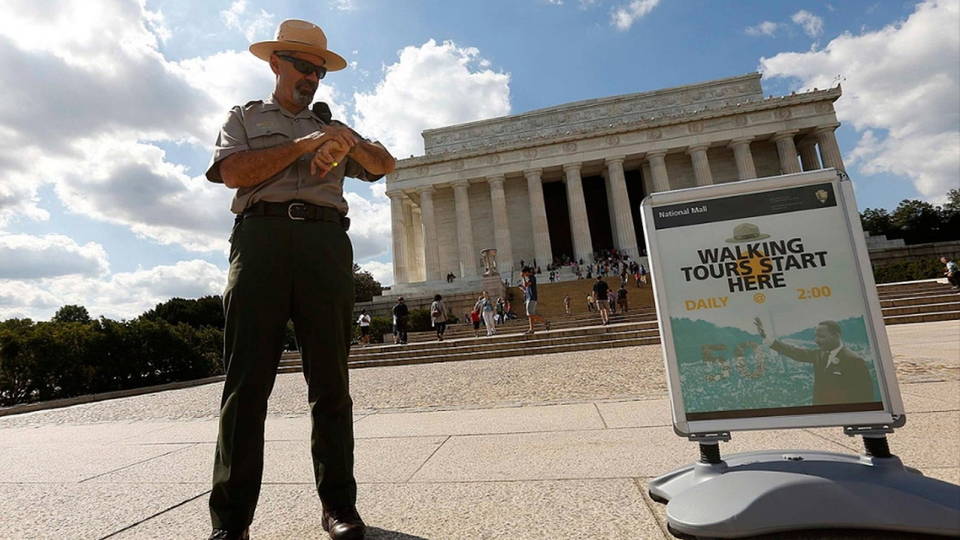


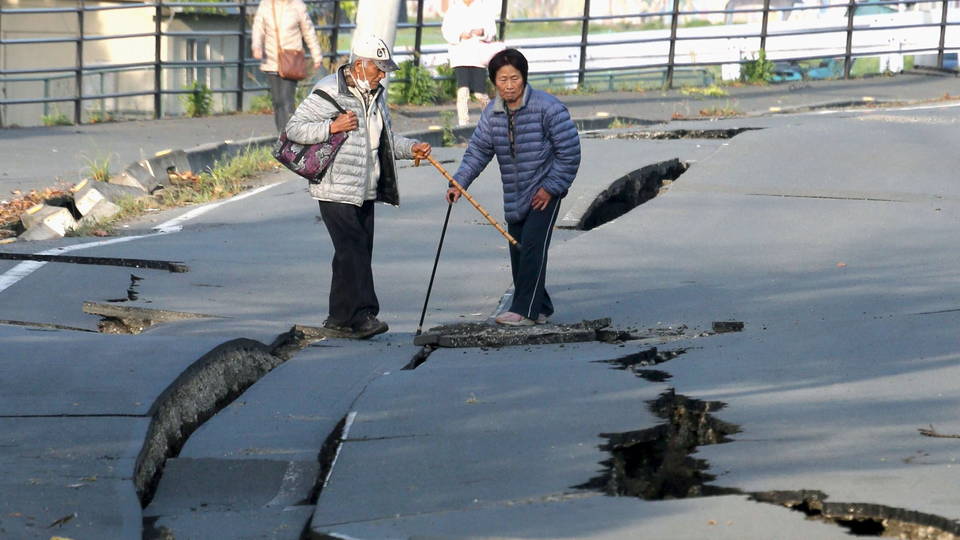

Sophia Wilansky Critically Injured During Police Attack at Standing Rock
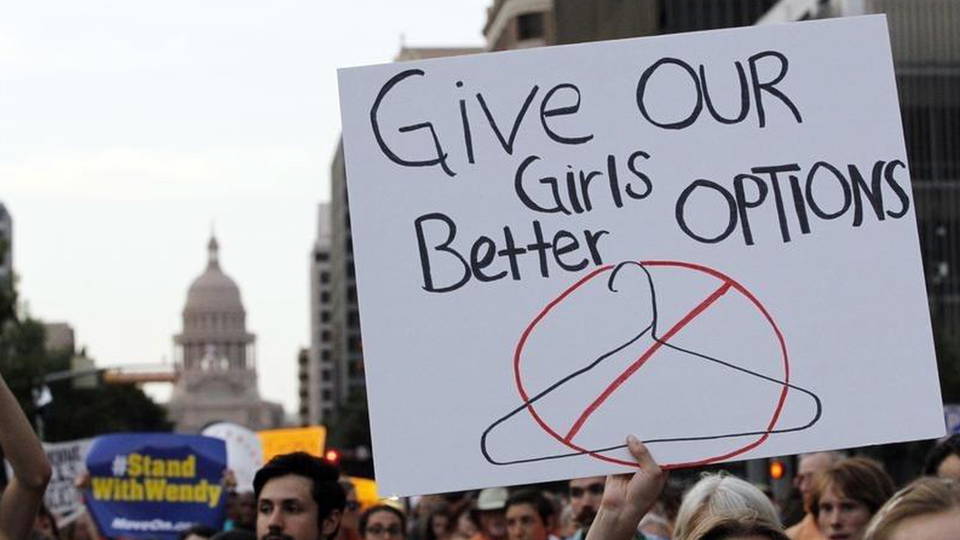

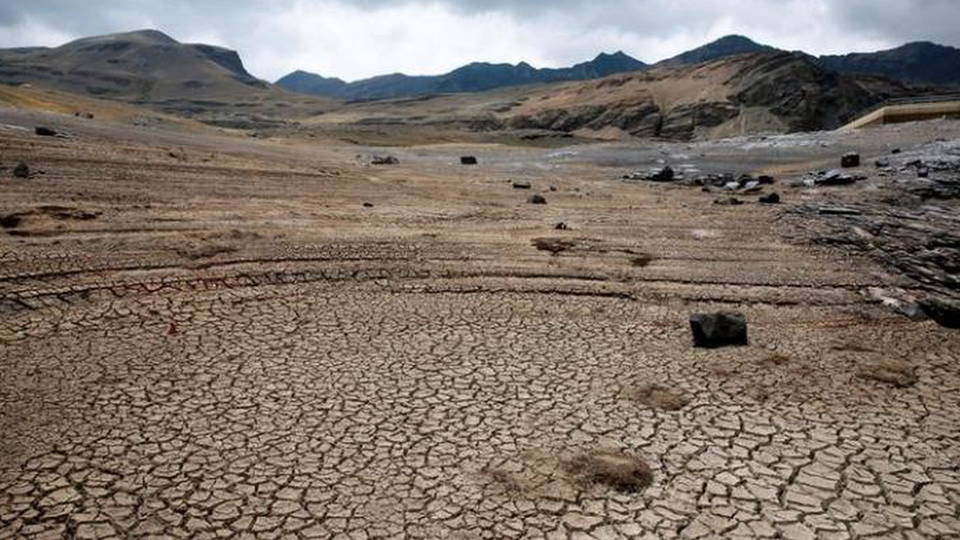
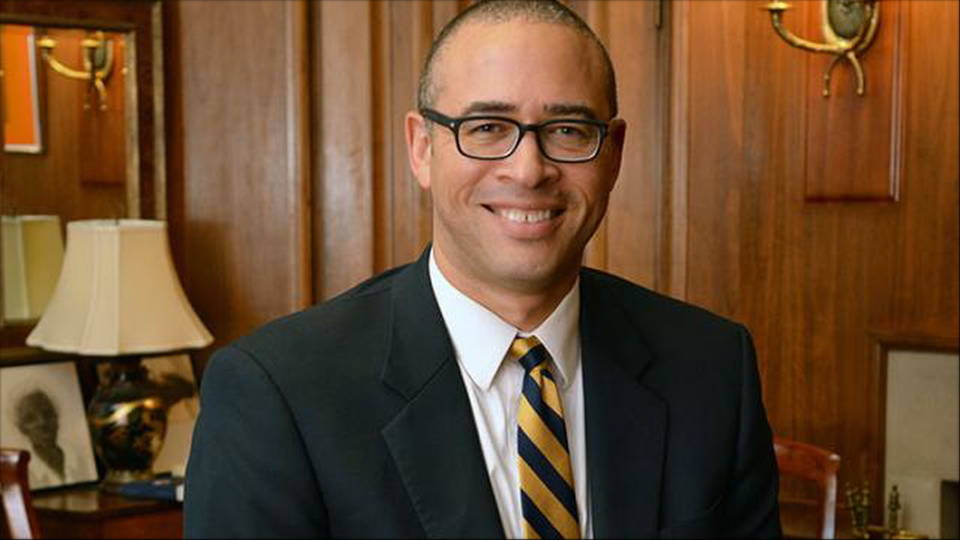 -------
-------
Donate today:
Follow:



CELEBRATE 20 YEARS OF DEMOCRACY NOW!
Democracy Now!'s 20th Anniversary Celebration
NEW BOOK

President-elect Donald Trump released a YouTube video Monday outlining plans to withdraw immediately from the massive Trans-Pacific Partnership trade deal, promote oil and gas extraction in the United States and roll back regulations.
President-elect Donald Trump: "I’ve asked my transition team to develop a list of executive actions we can take on day one to restore our laws and bring back our jobs. It’s about time. These include the following: On trade, I am going to issue our notification of intent to withdraw from the Trans-Pacific Partnership, a potential disaster for our country. Instead, we will negotiate fair, bilateral trade deals that bring jobs and industry back onto American shores. On energy, I will cancel job-killing restrictions on the production of American energy, including shale energy and clean coal, creating many millions of high-paying jobs. That’s what we want. That’s what we’ve been waiting for. On regulation, I will formulate a rule which says that for every one new regulation, two old regulations must be eliminated."
TOPICS:
Washington Post: Trump Policies Will Hurt Federal Workers

Despite Trump’s focus on creating more jobs in the United States, an investigation by The Washington Post reveals how Trump and the Republican-controlled Congress are, in fact, drafting up plans to eliminate government jobs and erode worker protections for federal workers. Among a few of the proposed changes that could affect federal workers are hiring freezes, cutting worker benefits and pensions, and eliminating automatic raises to keep pace with inflation.
TOPICS:
Trump Holds Off-the-Record Meeting with Top TV Anchors

Meanwhile, Trump’s release of the YouTube video came as he met with top corporate television anchors and executives, including Lester Holt, Charlie Rose, George Stephanopoulos, Wolf Blitzer, Martha Raddatz and David Muir, at Trump Tower Monday. The meeting was off the record, and the anchors and reporters who attended it have refused to comment on it. But leaked details about the meeting suggest Trump chastised the journalists for their coverage during the campaign, which he has complained was biased against him. The networks have also been criticized for giving Trump an overwhelming amount of free exposure early in the campaign in order to boost ratings. Erik Wemple of The Washington Post criticized the networks for agreeing to the terms of Monday’s off-the-record meeting, saying, "They learned nothing over past 18 months of covering Trump." Trump is slated to meet with editors and reporters at The New York Times building today.
TOPICS:
U.N.: 1 Million Syrians Under Siege, Most by Government Forces

The United Nations is warning nearly 1 million Syrians are living under siege—double the number last year. The vast majority, 850,000 people, are being besieged by Syrian government forces. On Monday, U.N. aid chief Stephen O’Brien said civilians trapped in besieged eastern Aleppo, where the final hospitals have been destroyed by Syrian government bombing, are facing "annihilation." This is O’Brien.
Stephen O’Brien: "I call on all with influence—that’s the phrase I am diplomatically required to use, but you know around this table and beyond who you are—to do their part to end these senseless cycles of violence once and for all, to put an end to the slaughterhouse that is Aleppo."
TOPICS:
Japan: Thousands Evacuate After Tsunami Warning in Fukushima

In Japan, thousands were instructed to evacuate from Fukushima Monday, after a 7.4-magnitude earthquake triggered fears of a tsunami hitting the area and the Fukushima nuclear power plant. The tsunami advisory was lifted early this morning, and officials say the power plant was not damaged by the quake. In 2011, a massive earthquake and tsunami hit the same area, killing 20,000 people and causing the world’s worst nuclear disaster since Chernobyl.
TOPICS:
Rohingyas Flee to Bangladesh Amid Violence in Myanmar

Hundreds of Rohingyas have arrived in Bangladesh Monday after fleeing violence and the destruction of their homes in neighboring Myanmar. Rohingyas are Muslims who have long faced persecution and violence in Myanmar, including being denied citizenship. In recent weeks, the Myanmar military has killed as many as 100 Rohingya civilians, sparking hundreds more to flee into neighboring Bangladesh. Human Rights Watch says more than 400 Rohingya homes have also been burned. These are two Rohingya refugees, speaking after they arrived in Bangladesh.
Maryam Khatoon: "Military killed my husband, set fire to our house. As we did not get any help to save us, we fled our land and have come here."
Mohammed Hasim: "As we could not tolerate their tortures, we as a group crossed the river by boat at night. Four o’clock, we entered Bangladesh."
Sophia Wilansky Critically Injured During Police Attack at Standing Rock
In Minneapolis, 21-year-old activist Sophia Wilansky is in critical condition and has been undergoing a series of surgeries, after reportedly being hit by a concussion grenade during the police attack against water protectors fighting the $3.8 billion Dakota Access pipeline in North Dakota Sunday night. Sunday’s attack at Standing Rock included police firing rubber bullets, mace canisters and water cannons in subfreezing temperatures. The Standing Rock Medic & Healer Council reports as many as 300 people were injured in the attack, with the injuries ranging from hypothermia to seizures, to loss of consciousness, to impaired vision as a result of being shot by a rubber bullet in the face. Water protectors say at least 26 people were evacuated from the area by ambulances and hospitalized. Sophia Wilansky was evacuated and airlifted to a Minneapolis hospital. After hours of surgery, she posted on Facebook early this morning that her arm has not been amputated, but she will not know for another week whether amputation might be required. The Morton County Sheriff’s Department is claiming the police are not responsible for her injury. Wilansky is from New York City and has organized against the construction of pipelines, including the AIM Spectra pipeline, in New York and across the East Coast. A prayer vigil is slated for 4 p.m. today outside the Hennepin County Medical Center in Minneapolis.
TOPICS:
The Guardian: Self-Induced Abortions May Be on the Rise in U.S.

A new investigation by The Guardian reveals self-induced abortions may be on the rise in the United States, as women struggle to access abortion services amid a wave of anti-abortion restrictions imposed in recent years. Since 2008, online searches for information on how to induce one’s own abortion nearly doubled across the United States. Another study suggests more than 4 percent of women in Texas—that’s at least 100,000 women—have tried to self-induce their own abortion. The Guardian investigation also draws on emails sent by women in the United States to the Dutch organization Women on Web, which provides abortion drugs in countries where the procedure is banned outright. Despite abortion being legal in the U.S., the group received hundreds of emails from women across the U.S. last year alone. One woman in Missouri wrote that she had gone to the state’s only abortion clinic, "but the protestors shamed me into going back. I’m not a citizen and its a little scary coz I feel very lonely." Many wrote they could not afford an abortion. Another woman wrote, "I cry and pray every night that the Lord take this child from me somehow."
TOPICS:
Arctic Temperatures 35 Degrees Fahrenheit Above Average

In news on climate change, scientists are warning unprecedented high temperatures in the Arctic are preventing ice from freezing and may lead to record low levels of sea ice at the North Pole. Scientists say the air temperature is a staggering 35 degrees Fahrenheit above average. Rutgers University research professor Jennifer Francis said, "These temperatures are literally off the charts ... There is nothing but climate change that can cause these trends."
TOPICS:
Bolivia Declares State of Emergency Amid Drought

Meanwhile, Bolivian President Evo Morales has declared a state of emergency as residents of La Paz and other major cities struggle with extreme water shortages amid Bolivia’s worst drought in a quarter-century. On Sunday, protesters gathered outside the Chinese Embassy to protest mining projects they say are exacerbating the water scarcity. Scientists say the retreat of Bolivian glaciers caused by global warming is also responsible for the lack of water, as 2 million people in the area rely on glacier melt as their water supply. This is Bolivian President Evo Morales.
President Evo Morales: "The current supreme decree declares a state of national emergency due to the drought and water shortage in different regions of the national territory provoked by adverse climate phenomena. Therefore, through this supreme decree, mayors, governors and the national government have the obligation to mobilize economic resources to meet a human right that is water."
TOPICS:
Yale College Dean Jonathan Holloway Leaving for Northwestern

And in New Haven, Connecticut, Yale College Dean Jonathan Holloway has announced he’s leaving Yale to become the provost of Northwestern University next year. Holloway is the first African-American dean in Yale’s 315-year history. He was at times at the center of racial justice protests by students on campus last year, with many students of color looking to Holloway for leadership and with some criticizing him for not doing more to address racism on Yale’s campus. On Monday, Holloway said he was not leaving Yale because of the protests, saying instead, "Even though the protests were profoundly uncomfortable and at times heartbreaking, I’d rather be at a place where the students cared enough to speak up and take action."
TOPICS:
Donate today:
Follow:




CELEBRATE 20 YEARS OF DEMOCRACY NOW!

Democracy Now!'s 20th Anniversary Celebration
NEW BOOK

11/28 Philadelphia, PA
12/5 New York, NY
WORK WITH US!

Senior TV Producer
COLUMN

As the planet warms, Trump sends a chill through Marrakech
-------
207 West 25th Street, 11th Floor
New York, New York 10001, United States
-------
Democracy Now! Daily Digest: A Daily Independent Global News Hour with Amy Goodman & Juan González Monday, November 21, 2016
democracynow.org
Stories:

Jeremy Scahill: TigerSwan Security, Linked to Blackwater, Now Coordinates Intel for Dakota Access
That does it for today’s show. We’ll be celebrating Democracy Now!’s 20th anniversary with Harry Belafonte, Noam Chomsky, Patti Smith and more this December 5th in New York City. Visit democracynow.org for details. ... Read More →

Jeremy Scahill: Mike Pence Has "Militant Agenda" Against Women, the Poor, Immigrants, LGBTQ People
JUAN GONZÁLEZ: "Retreat!" by Sharon Jones & The Dap-Kings. Sharon Jones died this Friday after an extended battle with pancreatic cancer. She had returned to performing in 2015 after treatment, put the cancer into remission, but late last year she revealed she had been told it had returned. ... Read More →

Neocons, War Criminals & White Nationalists: Jeremy Scahill on Trump's Incoming Advisers & Cabinet
JUAN GONZÁLEZ: Well, we’re talking with Jeremy Scahill, co-founder of The Intercept, and his most recent article is headlined "Mike Pence Will Be the Most Powerful Christian Supremacist in U.S. History." His latest book is The Assassination Complex: Inside the Government’s Secret Drone Warfare Program. We’re going to take a short break, and then we’re going to come back and talk further with Jeremy about what the Trump administration holds for the future, or what we can at least judge from these initial appointments. ... Read More →
Headlines:
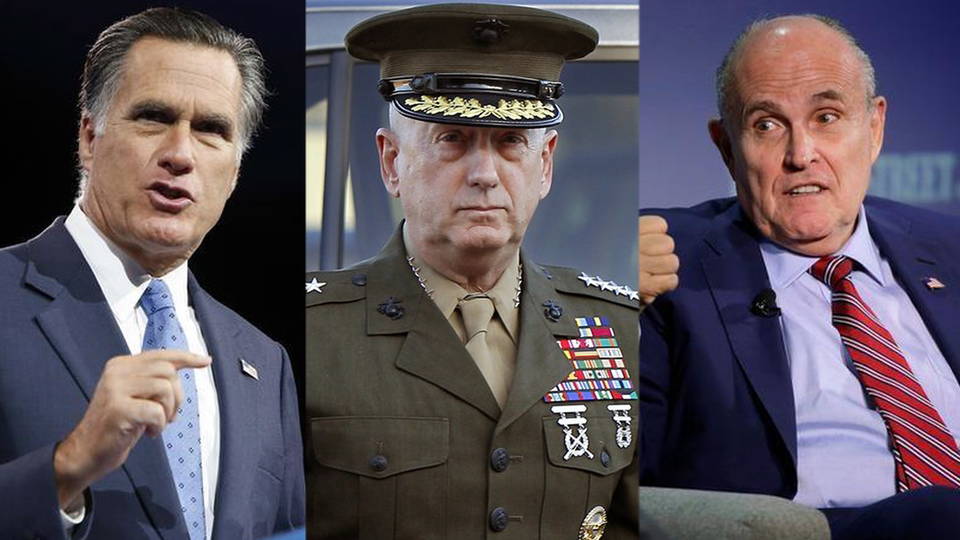


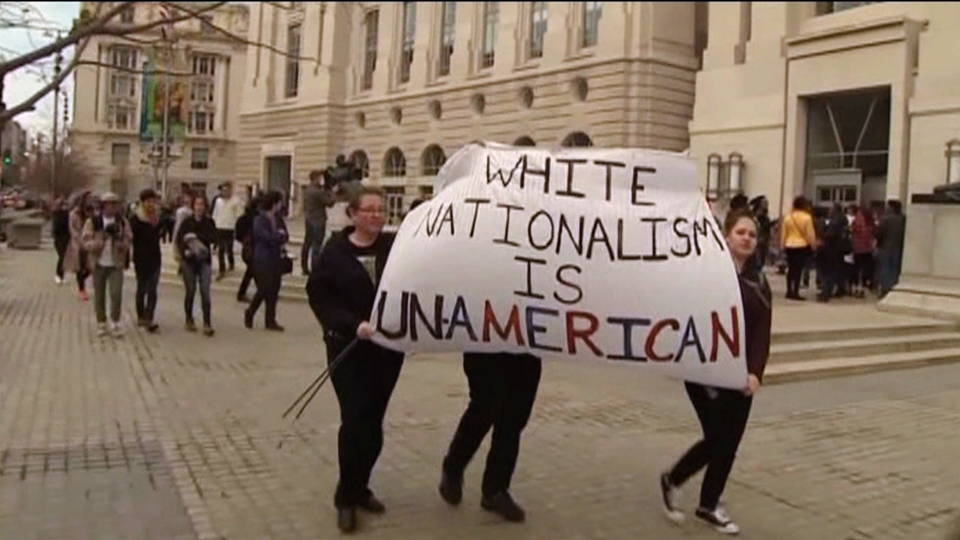

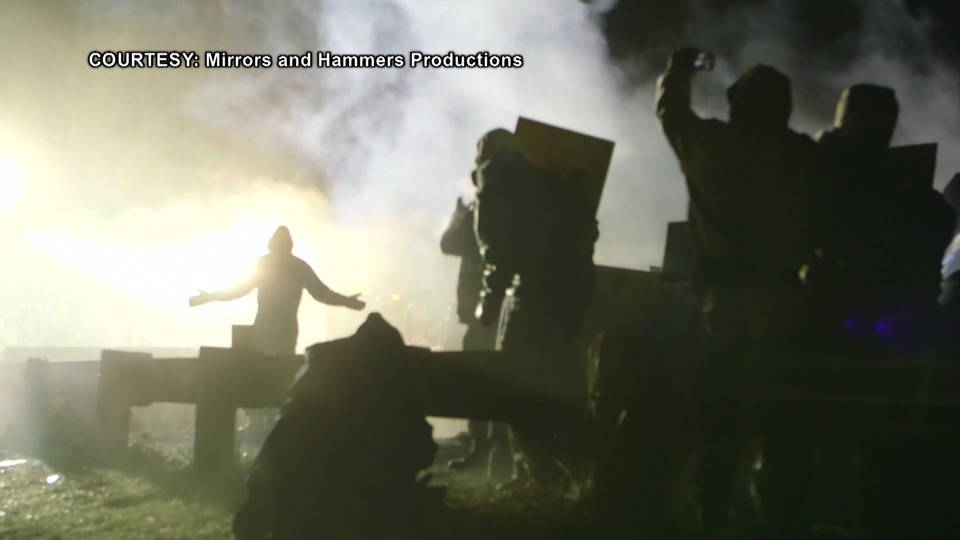

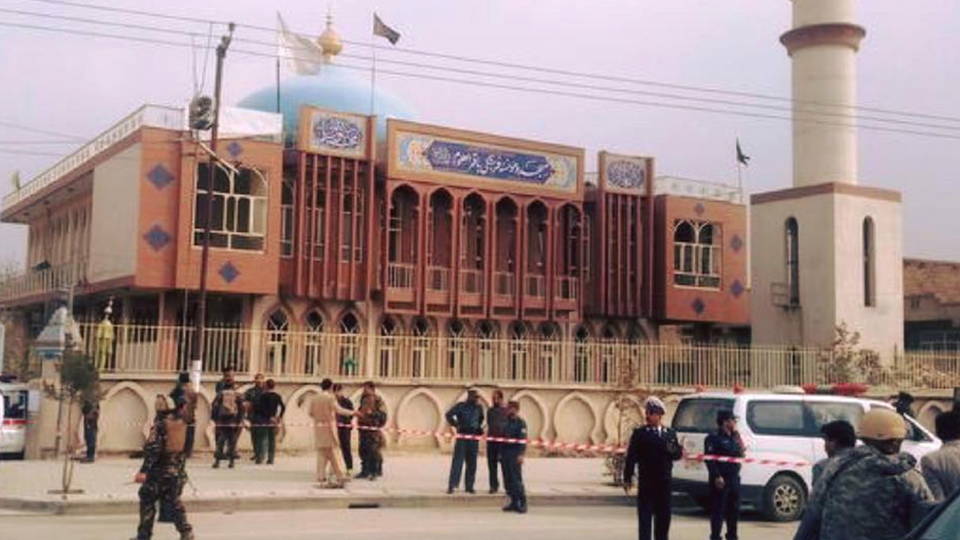




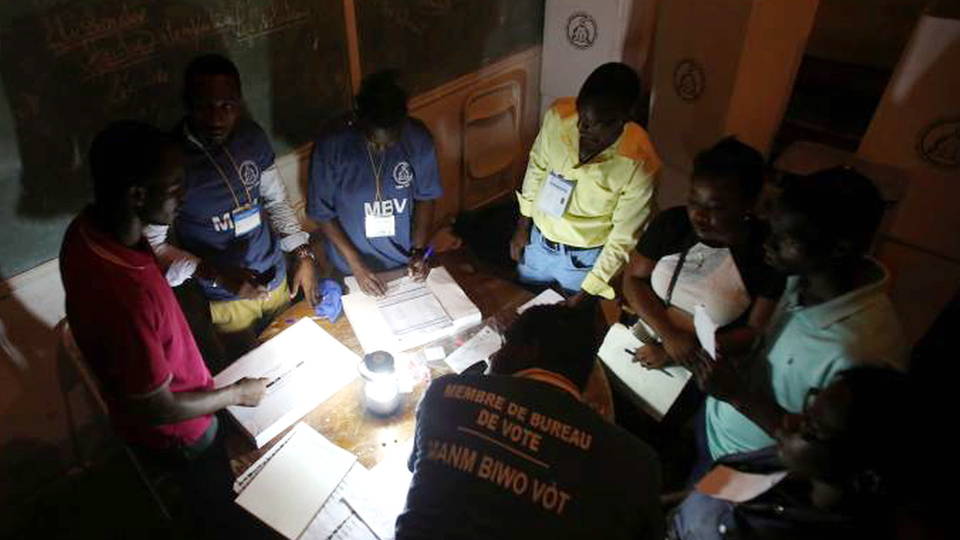
 -------
-------
Donate today:
Follow:



CELEBRATE 20 YEARS OF DEMOCRACY NOW!
Democracy Now!'s 20th Anniversary Celebration
NEW BOOK
-------
Democracy Now! Daily Digest: A Daily Independent Global News Hour with Amy Goodman & Juan González Monday, November 21, 2016
democracynow.org
Stories:

Jeremy Scahill: TigerSwan Security, Linked to Blackwater, Now Coordinates Intel for Dakota Access
We speak with Intercept co-founder Jeremy Scahill, who has spent years reporting on private security contractors such as the private security firm TigerSwan, which has links to the now-defunct mercenary firm Blackwater and is in charge of coordinating intelligence for the Dakota Access pipeline company. He discusses the company’s track record as more than 100 Native Americans and allies fighting the $3.8 billion Dakota Access pipeline have been injured by police in North Dakota. Many were attacked with rubber bullets, tear gas, mace canisters and water cannons in freezing temperatures. The attack began after the water protectors attempted to clear access to a public bridge, which has been blocked by authorities using military equipment chained to concrete barriers.
TRANSCRIPT
This is a rush transcript. Copy may not be in its final form.
JUAN GONZÁLEZ: This is Democracy Now!, democracynow.org, The War and Peace Report. I’m Juan González, in for Amy Goodman. Amy is on assignment.
In North Dakota, more than 100 Native Americans and allies fighting the $3.8 billion Dakota Access pipeline have been injured by police who attacked them with rubber bullets, tear gas, mace canisters and water cannons in freezing temperatures Sunday night. The attack began after the water protectors attempted to clear access to a public bridge, which has been blocked by authorities using military equipment chained to concrete barriers. Legal observers with the National Lawyers Guild said multiple people temporarily lost consciousness after being shot. Witnesses say one elder also went into cardiac arrest and was revived on the scene by medics. Many people were treated for hypothermia after being hit by water cannons in freezing temperatures. Water protectors say the police also fired rubber bullets at journalists, shot down drones being used to document the attack. Both the Standing Rock Sioux Tribe and the Cheyenne River Sioux Tribe sent medical first aid responders. This is Angela Bibens, a lawyer with the Red Owl Legal Collective, speaking in a telephone interview recorded by Dallas Goldtooth Sunday.
ANGELA BIBENS: Right now we’ve seen people who have been maced. They deployed 20 mace canisters in a small area in less than five minutes, to the point where people have lost bowel function. At least one seizure has been witnessed at the front lines by our legal observation team. There have been people vomiting from the exposure to the mace. The water cannon has been mixed with the mace, and so even our legal observers have been exposed and are trying to deal with that while they’re doing up their notes. And canisters were shot at the medic area at the front line. There is at least one woman who has a broken kneecap. At least one elder went into cardiac arrest and was revived through CPR at the front line by medics.
JUAN GONZÁLEZ: Sunday’s attack comes as water protectors face an increasingly militarized crackdown against the movement to stop the Dakota Access pipeline over concerns the construction will destroy sacred tribal burial sites and that a pipeline spill could contaminate the Missouri River. The state of North Dakota has approved $10 million to police the ongoing resistance. North Dakota Governor Jack Dalrymple has activated the National Guard. Over 400 people have been arrested during the ongoing protests, and many report being subjected to strip searches while in the Morton County jail in North Dakota.
The water protectors have also faced attacks and surveillance from private security companies working for the Dakota Access pipeline company. On September 3rd, unlicensed private security guards unleashed attack dogs on Native Americans trying to protect a tribal burial site from destruction. The private security firm TigerSwan security is in charge of coordinating intelligence for the Dakota Access pipeline company. TigerSwan has links to the now-defunct mercenary firm Blackwater.
For more, we’re joined by Intercept reporter Jeremy Scahill, who has spent years reporting on private security contractors, including TigerSwan.
Welcome back, Jeremy. What about the situation in North Dakota?
JEREMY SCAHILL: Well, I mean—well, first of all, let’s remember that we’re speaking a week when there’s the big American holiday, Thanksgiving, and I always think of the slaughter of the indigenous people in this country around this time of year and people like Leonard Peltier, the political prisoner who—unfortunately, it seems like yet another president is going to leave office without pardoning Leonard Peltier. But to watch what we’re seeing come out of the protesters on this—the protectors on this indigenous land, facing down against environmental-destroying companies, you know, really brings home the kind of utter hypocrisy of the narrative about the United States of America. But also, if you look at the way that these indigenous people and their supporters are being treated versus the Bundy ranchers, you know, who didn’t occupy their native land—they went and they took over federal land with weapons and ended up getting acquitted, including of the charges that they were very clearly guilty of, which is all these weapons possession charges—and it makes you wonder, if this is the state of affairs under President Obama, who actually has visited Native reservations and Native territories, what’s going to happen under Trump?
And this firm, TigerSwan, was founded by a Delta Force operative named James Reese and has done voluminous amounts of covert and overt work for the U.S. military in Iraq, in Afghanistan and elsewhere around the world. And, you know, you realize that you have this convergence of all that has been so wrong in the post-9/11 world, with these big environment-destroying companies, the stripping even further of indigenous rights, private security forces, the brutality against protesters, the paramilitarization of law enforcement. And now our incoming president—I still feel strange saying that—Donald Trump also has business connections to the pipeline project? Is he going to divest? Is he going to—I mean, like, this is going to go from the level of Obama just being, you know, really bad on these policies to Trump actively trying to make it worse for the environment.
JUAN GONZÁLEZ: Well, in a recent interview, the head of the company behind the Dakota Access pipeline, Kelcy Warren of Energy Transfer Partners, said he’s 100 percent confident that Trump will support the completion of the Dakota Access pipeline. Kelcy Warren has donated more than $100,000 to Trump’s campaign, while Trump himself gas between $500,000 and a million dollars invested in Energy Transfer Partners, according to his own disclosures.
JEREMY SCAHILL: Oh, no, and I remember, you know, you and I were talking about this back when—you know, when Cheney was coming in, and then we were talking about Enron, and we were talking about the people that they put on their commission about energy. You know, Trump’s choice of who he’s going to put in as energy secretary or secretary of the interior—they’re even talking about potentially Sarah Palin being the interior secretary. But, you know, I don’t know, was like, you know, Ronald McDonald not available? I mean, it’s really sick, some of the people. You know, putting Mike Huckabee in charge of health and human services, a guy who said that abortion is like worse than the Holocaust? And, I mean, it really feels like we’re watching a not-so-slowly moving train wreck in this country right now.
JUAN GONZÁLEZ: Or even floating the idea that Joe Arpaio, who’s just been voted out as Maricopa County sheriff, would become head of homeland security.
JEREMY SCAHILL: Right.
JUAN GONZÁLEZ: Although at 82 years old, I doubt that he wants to come to Washington.
JEREMY SCAHILL: Yeah. It would be an amusing, you know, Senate confirmation hearing. I mean, what’s potentially more likely, but in the same category, is Sheriff David Clarke of Milwaukee County, who has, you know, said—called Black Lives Matter—he’s African-American himself, but has called Black Lives Matter subhuman, has said that there is no such thing as police brutality, who led the chants of "Blue lives matter" at the Republican National Convention and is a regular on Bill O’Reilly’s show and others on—and Hannity on Fox News.
Juan, one thing I forgot to mention when we were talking about the Cabinet that Trump is putting together on the national security level, we should remember that national security adviser is not Senate-confirmed. And it’s an extraordinarily powerful position that is—has definitions going back to 1947, but basically is like a parallel, unaccountable national security apparatus, and it’s very secretive how it operates, and it’s up to the whims of a particular administration. But also, Flynn and Mattis, if Mattis is to be defense secretary, would require waivers to be issued for them, because you’re not allowed to go from uniform within the last seven years to a civilian position without a waiver from Congress. Why is that? It’s because there has to be chain of command where civilians are directing the military; otherwise, you start to veer into territory of a military dictatorship or a military state. And it seems like that’s part of what Trump actually wants. It could be coincidence that these guys were just recent military people. But you do have to, because it’s Trump, take into account the possibility that he really does want what amounts to a dictatorship of the executive branch, where these policies actually are dictated by the military and not necessarily the civilian chain of command, outside of him and Pence.
JUAN GONZÁLEZ: I think we have about a minute left, but, Jeremy, I wanted to ask you, in terms of the—you reached out to the Morton County Sheriff’s Office to try to get some information on the private security firms. What happened?
JEREMY SCAHILL: Well, the Morton County sheriffs, they released documents, internal documents, about their investigation into the dog handlers. And what they inadvertently revealed was that this company, TigerSwan, run by these Delta Force guys, was actually in charge of coordinating the intelligence operations against the protesters.
One word of advice to all the protesters there: Do not believe that your cellphones or your computers are clean and uncompromised. I guarantee you that they’re using the entire suite of surveillance devices. I know that people have been complaining that their cellphones have been down, their internet has been down. That can be caused by surveillance weaponry targeting their devices. It could be because there are so many people using them. But my guess would be that they are using people’s devices, meaning law enforcement and private security, as geo-tracking devices. And people should be very aware that the full CIA/NSA-developed suite of tools that now have made it into the hands of local law enforcement in this country are most certainly trained on those activists and their supporters.
JUAN GONZÁLEZ: OK, well, I want to thank you for being with us.
JEREMY SCAHILL: Thanks, Juan.
JUAN GONZÁLEZ: Jeremy Scahill, co-founder of The Intercept, where his most recent article is headlined "Mike Pence Will Be the Most Powerful Christian Supremacist in U.S. History."

Jeremy Scahill: Mike Pence Has "Militant Agenda" Against Women, the Poor, Immigrants, LGBTQ People
We spend the hour looking at the incoming administration of President-elect Donald Trump, a candidate who ran on a platform of open bigotry, threats against immigrants and Muslims, and blatant misogyny. Trump’s vice president, Mike Pence, is often portrayed as a counterbalance to Trump and called a "bridge to the establishment." But our guest Jeremy Scahill, co-founder of The Intercept, says Pence’s ascendance to the second most powerful position in the U.S. government is a "tremendous coup for the radical religious right. Pence—and his fellow Christian supremacist militants—would not have been able to win the White House on their own. For them, Donald Trump was a godsend."
TRANSCRIPT
This is a rush transcript. Copy may not be in its final form.
JUAN GONZÁLEZ: Today, we spend the hour looking at the incoming administration of President-elect Donald Trump, a candidate who ran on a platform of open bigotry, threats against immigrants and Muslims and blatant misogyny. Over the weekend, Trump held meetings with finalists for high-level Cabinet positions at his golf resort clubhouse in New Jersey. Reporters questioned Trump as retired Marine General James Mattis, who is considered a strong contender for defense secretary, left the facility.
DONALD TRUMP: Really efficiently, very good, tremendous talent. We’re seeing tremendous talent, people that—as I say, we will make America great again. These are really great people. These are really, really talented people.
REPORTER 1: Do you see the Cabinet being shaped by [inaudible]?
DONALD TRUMP: Yes, partially.
REPORTER 1: Will you be announcing any—
DONALD TRUMP: We’re doing this again tomorrow.
REPORTER 2: Is General Mattis going to be secretary of defense?
DONALD TRUMP: Well, we think he’s a great guy. I mean, he’s some—he is some great man.
REPORTERS: [inaudible]
DONALD TRUMP: You will hear some things tomorrow, I think.
REPORTER 3: Governor Pence, what are your thoughts, Governor Pence?
VICE PRESIDENT-ELECT MIKE PENCE: Great day.
REPORTER 4: Does Bridgegate disqualify Governor Christie from being in your Cabinet, sir?
DONALD TRUMP: We like Chris a lot.
JUAN GONZÁLEZ: Retired Marine General James Mattis is a former commander of United States Central Command and one of several names being floated for secretary of defense. Other possible nominees include Arkansas Senator Tom Cotton, who saw combat in Iraq and Afghanistan as an infantry officer, and national security adviser under George W. Bush, Stephen Hadley.
Later in the broadcast, we’ll examine other potential members of Trump’s Cabinet, but first we turn to his incoming vice president, Mike Pence, who is often portrayed as a counterbalance to Trump and called a, quote, "bridge to the establishment." But our guest today says there’s every reason to consider him even more terrifying than President-elect Trump. The Intercept's Jeremy Scahill writes that Pence's ascendance to the second most powerful position in the U.S. government is a, quote, "tremendous coup for the radical religious right. Pence—and his fellow Christian supremacist militants—would not have been able to win the White House on their own. For them, Donald Trump was a godsend."
On Friday, Pence attended a performance of the Broadway hit Hamilton in New York City. At the end of the show, actor Brandon Victor Dixon, who plays Aaron Burr in the rap musical about America’s Founding Fathers, had a message for Pence.
BRANDON VICTOR DIXON: You know, we had a guest in the audience this evening. And, Vice President-elect Pence, I see you walking out, but I hope you will hear us just a few more moments. There’s nothing to boo here, ladies and gentlemen. There’s nothing to boo here. We’re all here sharing a story of love. We have a—we have a message for you, sir, and we hope that you will hear us out. And I encourage everybody to pull out your phones and tweet and post, because this message needs to be spread far and wide, OK?
Vice President-elect Pence, we welcome you, and we truly thank you for joining us here at Hamilton: An American Musical. We really do. We, sir, we, are of the diverse America who are alarmed and anxious that your new administration will not protect us, our planet, our children, our parents, or defend us and uphold our inalienable rights, sir. But we truly hope that this show has inspired you to uphold our American values and to work on behalf of all of us. All of us. Again, we truly thank you for sharing this show, this wonderful American story told by a diverse group of men and women of different colors, creeds and orientations.
JUAN GONZÁLEZ: Donald Trump later took to Twitter to demand an apology from the cast of Hamilton, saying, quote, "Our wonderful future V.P. Mike Pence was harassed last night at the theater by the cast of Hamilton, cameras blazing. This should not happen!"
In Pence’s first round of Sunday show interviews since the election, he said he wasn’t offended by the remarks and that Trump would be a president, quote, "for all Americans." Later, in an interview on CBS’s Face the Nation, Pence was asked whether Trump would reinstate waterboarding as an interrogation technique during his administration. This was his response.
VICE PRESIDENT-ELECT MIKE PENCE: We’re going to have a president again who will never say what we’ll never do. I think, in President-elect Donald Trump, you have someone who believes that we shouldn’t be telling the enemy what our tactics or our strategies are. And I know that in conversations with some leading Americans about—about playing roles in our administration, we’re very excited about Congressman Pompeo’s role at the CIA, we’re very excited to see General Mike Flynn stepping into his leadership position. The team that we assemble, the president-elect assembles at the Department of Defense will all advise him, but the American people should know that this is a—this is a president who, on day one, January 20th, is going to focus on defeating and destroying ISIS at its source and confronting radical Islamic terrorism so it can no longer threaten our people or inspire violence here in the homeland.
JUAN GONZÁLEZ: That was Vice President-elect Mike Pence speaking Sunday on Face the Nation.
Well, for more, we’re joined by Jeremy Scahill, co-founder of The Intercept, where his most recent article is headlined "Mike Pence Will Be the Most Powerful Christian Supremacist in U.S. History." His latest book is The Assassination Complex: Inside the Government’s Secret Drone Warfare Program.
Welcome to Democracy Now!, Jeremy.
JEREMY SCAHILL: Good to be with you, Juan.
JUAN GONZÁLEZ: All right, let’s start with Mike Pence now, extensive articles you’ve been doing on him, particularly your main concern about him as the new vice president.
JEREMY SCAHILL: I’ve been covering Mike Pence for almost a decade, and my initial gateway into covering Pence is because he was one of the candidates that received the most funding from Erik Prince, the founder of Blackwater, who during the Bush-Cheney years operated what amounted to a Christian supremacist neo-Crusader militia. And Pence was actually the member of Congress that invited and welcomed and threw a party for Erik Prince in the aftermath of the Nisoor Square massacre in Baghdad in 2007, when Blackwater operatives killed a dozen and a half Iraqi civilians, including small children. So, Pence sort of was on my radar because of looking at who Erik Prince and his family were funding.
You look at Pence’s evolution as a political figure, and in many ways it is the story of how the radical religious right gained such prominence and now is in an unprecedented position to wield power. Some may say, "Oh, well, wasn’t George W. Bush the same mentality?" These guys are more extreme than George Bush on issues of religion, on issues of women’s right to choose, on immigrant rights, on gay marriage—a slew of issues. I mean, they really make Dick Cheney look like a reasonable guy on some of these policies. And, in fact, Mike Pence says that Cheney is one of his mentors and examples and whose footsteps he wants to follow in as vice president, combined, though, with a really radical Christian agenda. Mike Pence—
JUAN GONZÁLEZ: Well—
JEREMY SCAHILL: Yeah.
JUAN GONZÁLEZ: When you say Christian supremacist, as opposed Christian fundamentalist, what’s the—
JEREMY SCAHILL: Well, part of what I write—well, so, part of what I was doing with this article was playing with the way that so many people have used these terms to describe people that are perverting the religion of Islam in the name of ISIS or al-Qaeda, etc., and I sort of did it as a social experiment, and I got inundated with people demanding that I retract these labels. And some of those people, in their emails to me, actually use these same terms to describe the religion of Islam.
So, but what I’m getting at is that Mike Pence is not just against gay people being together in a relationship; he wants to legislate a ban on those issues. He wants to repeal Roe v. Wade. As he said, he wants to put it in the ash heap of history. Their primary agenda, on a social level, is basically taking us back to medieval times when it comes to the rights of women, the rights of immigrants, the rights of the poor, the humanhood of all of these sort of vulnerable, targeted groups.
And, you know, Mike Pence, his personal history is interesting. He was raised in an Irish Catholic, Kennedy Democrat household, and then he was converted, on the spot, at a Christian music festival in Kentucky while he was in college. And he sort of now describes himself as an evangelical Catholic. But his sort of intellectual role models within this, what I call a Christian supremacist world, are people like the famed radical right-wing Catholic priest Richard Neuhaus, who was an evangelical and converted to being a Catholic, Gary Bauer and James Dobson, you know, ferocious right-wing, anti-woman activists. These are the people that sort of populate the world that Mike Pence comes out of. And Pence has always been viewed as one of the prized warriors of the radical religious right.
In Indiana, his state was one of the most—had one of the most restrictive, draconian rules on abortion, in the criminalizing of abortion. He actually tried to ram through a law that would have required fetal tissue or fetuses that were aborted to receive a proper burial. And, you know, a judge intervened, a federal judge intervened, the day before this was to take hold, and said this is quite likely unconstitutional. He denied—he held up HIV medication and treatment funding, trying to put on it a requirement that it come with a therapy that would preach against the evils of gay sex. He has said that he believes that the only safe sex is no sex, and he chided former Secretary of State Colin Powell for suggesting that people should use condoms when having sex.
JUAN GONZÁLEZ: I want to turn to—Indiana Governor Mike Pence cut funding to Planned Parenthood, resulting in the closing of clinics. Pence has also called for ending all federal funding to the organization. This is him speaking in 2011.
REP. MIKE PENCE: The time has come to deny all federal funding to Planned Parenthood of America. I’ve authored the Title X Abortion Provider Prohibition Act, which would deny Title X funds to Planned Parenthood or any other abortion provider. And Congress must act, and act now, to move this important legislation. Pro-life Americans and all Americans should not be forced to subsidize America’s largest abortion provider or to continue to provide federal taxpayer dollars to Title X clinics that engage in this abhorrent behavior.
JUAN GONZÁLEZ: That was Mike Pence in 2011. Plan Parenthood has called Vice President-elect Mike Pence, quote, "the anti-women’s health crusader," noting that Pence has already passed extreme anti-abortion, anti-Planned Parenthood, anti-LGBTQ laws. Since the election, the group says it has received 20,000 donations made from its supporters in the name of Mike Pence. This is Planned Parenthood President Cecile Richards speaking to MSNBC after the election.
CECILE RICHARDS: Our doors stay open, and they will. And it has been kind of extraordinary, as you said. We have supporters—thousands of supporters from around the country took to social media last night immediately. Folks have been dropping off baked goods at our health centers. But also, one of the most interesting things has been the number of women who have called and made appointments for birth control, IUDs, things that are covered now by the Affordable Care Act at no cost, because they are, of course, concerned that Donald Trump will follow through on his pledge to overturn the Affordable Care Act. So we are seeing lots of new patients coming in to our—in to our health centers.
JUAN GONZÁLEZ: That was Cecile Richards of Planned Parenthood, responding to some of the positions of Pence. But, Jeremy, very little of this made its way into the public discussion during the campaign season of Pence’s stance on a lot of these issues. He was portrayed sort of as the more reasonable, more establishment figure compared to Trump. Your—
JEREMY SCAHILL: Oh, yeah, even like liberal pundits and major newspapers have sort of referred to him as like the adult in the room, and this is going to be the reasonable guy who will be able to have a conversation with the Democrats. I mean, Mike Pence is anything but reasonable. I mean, this is a guy who has a militant agenda against women, against the poor, against immigrants. But also, remember, he is going to be running both domestic and foreign policy, according to Donald Trump Jr. Now, the Trump campaign walks that back and says, "Oh, we didn’t say that." I think it’s very likely they did say that. And that becomes extremely important when you look at the composition of the Supreme Court right now. You know, the Republicans have effectively stopped Obama from putting Merrick Garland in as a Supreme Court justice. We have the potential for these guys to be putting in two, maybe more, Supreme Court justices. The court will tilt as sharp to the right as it’s been certainly in our lifetime and could actually raise the prospect of a full attempt to criminalize abortion.
Just quickly, also, on foreign policy, you know, Mike Pence is an extremely hawkish neocon when it comes to redrawing maps in the Middle East. He is now coming to terms with the fact that he loves torture. He was one of those Republicans who was sort of saying John McCain is right on this; now he’s walking that back. The strategy that they’ve said they’ll employ against ISIS is just like bomb the blank out of them, as Donald Trump put it.
Mike Pence, though, is an interesting guy. The few areas where I actually think he has decent policy ideas, he’s now slowly backing away from them. One is, Mike Pence was one of the only members of Congress to support a shield law for journalists to protect confidential sources. And Mike Pence actually had a very strong position on that. The language of the bill that they ended up putting forward, that of course did not pass, was weak in its exceptions for national security, which is what they use against, well, The Intercept and other places to conduct surveillance on journalists. But it was there. He also has walked back his opposition to warrantless wiretapping. In the state of Indiana, he tried to require probable cause in order for local law enforcement to use Stingray surveillance devices against people. But he wants a permanent PATRIOT Act, and he doesn’t want federal law enforcement to have a warrant. So, on these issues where he may have had some logical, sane policy ideas, Trump has all but destroyed that. And Pence is now a foot soldier in this lunatic agenda, that joins his own lunatic agenda. So, it’s kind of like the worst of both worlds from the right.
JUAN GONZÁLEZ: And quickly, on Israel-Palestine? Because Trump, at least in the debates, seemed to be offering a more balanced approach to Israel-Palestine. Your sense?
JEREMY SCAHILL: Yeah, no, I mean, Mike Pence has suggested that the United States should pass a law, or pass a resolution, rather, supporting an Israeli attack on Iran, should they decide to do that.
You know, Pence, also, on climate change, I call him sort of climate change curious. He once said it was a fraud and wrote that, and that was part of his political campaign, was to say climate change is a total myth, and it’s a fraud. Now he’s sort of saying, "Well, yeah, I guess that human actions and pollution contribute to this, but I don’t want us to do anything about it, because jobs." You know, there’s this whole thing about Trump restarting coal. First of all, they’re lying to those workers, you know, that they’re going to be reopening this booming coal industry. You know, for reasons that have nothing to do with the environment, they’re going to lose that. But to have a—to have two people running this country who have either dog-whistled or blatantly said that climate change is a hoax bodes very, very dim for the prospects of our environment and the world that we’re going to leave our children and our grandchildren.
It’s a frightening administration on a number of levels, because it combines the buffoonery of Trump’s public persona with nuclear weapons and being the most powerful economic force in the world right now, second maybe to China, with this radical right-wing Christian supremacist agenda. They want to wipe out Muslims. That’s the clearest definition of a religious supremacy: You want to wipe out another people because of their religion. ANd Pence is in good company in the emerging Cabinet in terms of viewing Islam as an ideology that needs to be exterminated, along with its followers.
JUAN GONZÁLEZ: Well, we’re talking with Jeremy Scahill, co-founder of The Intercept, where his most recent article is headlined "Mike Pence Will Be the Most Powerful Christian Supremacist in U.S. History." We’re going to be going into the rest of that Cabinet after we come back from this break.
[break]

Neocons, War Criminals & White Nationalists: Jeremy Scahill on Trump's Incoming Advisers & Cabinet
Jeremy Scahill, co-founder of The Intercept, examines the "team of rivals" Trump is considering for key appointments to his Cabinet, noting all of them have "ended up in direct conflict with President Obama over key issues that Trump and Pence have sort of touted." Trump has offered the national security adviser position to Lt. Gen. Michael Flynn, who is well known for his anti-Muslim worldview, having called Islam a "cancer" and saying "fear of Muslims is rational." Kansas Congressmember Mike Pompeo, who opposed closing Guantánamo Bay prison, has been named as CIAdirector. Trump has also selected Alabama Senator Jeff Sessions to be attorney general. Sessions is a former prosecutor who was elected to the Senate in 1996, where he consistently supported anti-immigration legislation and has been a leading opponent of the Voting Rights Act.
TRANSCRIPT
This is a rush transcript. Copy may not be in its final form.
JUAN GONZÁLEZ: This is Democracy Now!, democracynow.org, The War and Peace Report. I’m Juan González, in for Amy Goodman. Amy is on assignment. We turn now to look at the rest of the incoming administration of President-elect Donald Trump. Last week, Trump made three key announcements to his Cabinet. He offered Lieutenant General Michael Flynn the position of national security adviser. Flynn is well known for his anti-Muslim worldview, having called Islam a "cancer" and saying, quote, "fear of Muslims is rational," unquote. The position of national security adviser does not require Senate confirmation. Flynn served as the director of the Defense Intelligence Agency under President Obama, during which time some of his subordinates invented the term "Flynn facts" to refer to the false claims Flynn frequently made, including claiming Sharia law was spreading in the United States.
On Friday, Kansas Congressmember Mike Pompeo was named as CIA director. Pompeo has opposed closing Guantánamo Bay prison. In 2013, he visited the notorious U.S. prison and said of the prisoners who were on hunger strike, quote, "It looked to me like a lot of them had put on weight." He’s also a vocal opponent of the Iran nuclear deal.
And in one of his first appointments, Trump selected Alabama Senator Jeff Sessions to be attorney general. Sessions is a former prosecutor who was elected to the Senate in 1996. As a senator, he’s consistently supported anti-immigration legislation. In 2010, he was a leading proponent of the efforts to repeal the 14th Amendment, which grants citizenship to everyone born in the United States. Sessions has also been a vocal opponent of the Voting Rights Act. In 1986, President Ronald Reagan nominated Sessions for a federal judgeship, but he was denied confirmation because of his history of racist comments, including reportedly saying he thought the Ku Klux Klan, quote, "was OK until I found out they smoked pot," unquote.
Well, for more, we’re still joined by Jeremy Scahill, co-founder of The Intercept.
Jeremy, welcome back. Talk to us about these appointments from Friday, the three key security—defense and security appointments.
JEREMY SCAHILL: I mean, first of all, one thing that’s, I think, really interesting is that Trump is putting together his own version of a "team of rivals." They’re rivals of President Obama when it comes to some of these military people. You have General Flynn. You have General Mattis, who—a former Marine Corps general who very well may be the secretary of defense. And then you have Admiral Mike Rogers, current head of the NSA, that may end up being the director of national intelligence. All of these people ended up in direct conflict with President Obama over key issues that Trump and Pence have sort of touted. And we’ll get to that in a moment.
With the issue of—starting with General Mike Flynn, I’ve followed Flynn’s career for a very long time. Flynn is actually a very fascinating character. You know, his social media presence, I think, gives the impression that he’s just kind of a hateful buffoon. Flynn actually is a very important figure in the evolution of dirty wars post-9/11. Flynn was the intelligence chief for General Stanley McChrystal when McChrystal was the commander of the Joint Special Operations Command, which effectively operated as a kind of Praetorian Guard for the most sensitive operations being ordered by the White House under Bush and Cheney. You know, they killed their way through Iraq. They had set up a notorious prison called Camp Nama in Baghdad. Later, when Flynn and McChrystal really were rolling their sleeves up, they moved it the Balad Air Base. And Flynn and McChrystal were really credited with taking the strategy that in order to fight a force like al-Qaeda, you have to think like them. And so they started doing a lot more house raids, this intelligence leads to that intelligence, pre-emptive strikes. Flynn, himself, would personally sit in on the interrogations that were being conducted of prisoners, and there were wide allegations of abuse and torture at Camp Nama in Baghdad and then later at Balad, where Flynn was. He then went on to—with McChrystal, to Afghanistan, under President Obama, where they did their surge there and then implemented the same kind of sort of systematic, mathematical kill operation that they had built up in Iraq.
And then, you know, Flynn, at the Defense Intelligence Agency, ended up sort of being a nightmare of a footnote for Flynn’s career, in his own eyes. And you did have this business about him, you know, looking with a radical anti-Islam ideology at intelligence, which defeats the whole purpose of having people head an intelligence agency. And just so listeners understand, the DIA, the Defense Intelligence Agency, is the military’s equivalent of the CIA. And Under Donald Rumsfeld, when he was defense secretary, Rumsfeld really started encroaching on the areas that were typically the sovereign realm of the CIA. And that started this battle that we still see to this day where the CIA and the Pentagon are diving into each other’s—dipping into each other’s territory.
What I think we’re going to see with someone like Mike Pompeo, if he ends up being the CIA director, first of all, just on a side note that relates to the work we do at The Intercept, Pompeo basically has said that he thinks Edward Snowden should be killed and that he is a treasonous traitor and that he supports domestic surveillance operations, including against American citizens. He has a very strong anti-civil liberties background. And that’s why he’s getting praise from people like General Michael Hayden and others. Democrats also are speaking positively about him. He’s another adult in the room, Juan, like we were talking about Mike Pence.
JUAN GONZÁLEZ: Right.
JEREMY SCAHILL: "Mike Pompeo, OK, he’s an acceptable guy. He’s one of us. We know that we can do business with him." But the business these guys are going to do is bringing back a full-blown torture operations. It’s not that under Obama the CIAwasn’t engaged in horrifyingly—horrifying activities of questionable legality. It’s that with Bush and Cheney it was like they wore it on their sleeves, and it was sort of the—you know, Cheney’s obsession with we have to use forces on the dark side, that’s all coming back into power right now.
JUAN GONZÁLEZ: I wanted to ask you—Kansas Congressmember Mike Pompeo has opposed closing Guantánamo Bay. In 2013, he visited the notorious U.S. prison and said of the prisoners who were on hunger strike, quote, "It looked to me like a lot of them had put on weight." He’s also a vocal opponent of the Iran nuclear deal. This whole issue of Guantánamo, which Obama has been trying to close, and at least whittling down to a small number, but still not closing it.
JEREMY SCAHILL: Yeah, and, I mean, it’s one of the great failures of the Obama presidency. The Republicans outplayed Obama on the issue of Guantánamo. And I think their game plan was as long as there’s like at least one prisoner there by the time the Maoist, socialist, you know, black Kenyan gets out, then we can go back to game on. There are several of Trump’s either appointees or people that he’s considering that have said the only problem with Guantánamo is that there aren’t enough bodies there. And, you know, what’s interesting about Flynn, Pompeo and Guantánamo, Flynn actually has been an interesting critic of the president’s drone strike program. Now, it’s not that Flynn isn’t in love with killing people around the world. He definitely believes in pre-emptive strikes and targeted killings, you know, assassinations. But Flynn has said, by killing these people, we’re losing an opportunity to get valuable intelligence; what we need to do is ship them to black sites again, what we need to do is bring them to Guantánamo—big supporters of the military tribunal system.
So, I think what we’re going to see is that Obama has blessed these men—and it’s all men right now—with the gift of legitimizing drone strikes and making a legal argument as to why it’s OK to assassinate American citizens, combined with his failure to close Guantánamo, means that these guys are going to combine the worst aspects of what Obama has done, and using his credibility to legitimize it with liberals, and the worst aspects of the Bush-Cheney doctrine. It really is kind of unprecedented that this kind of a cabal has this much power, controlling both houses of Congress, the White House and an ability to run the deck in making a Supreme Court that is extraordinarily, almost unprecedented in its right-wing nature.
JUAN GONZÁLEZ: Well, on Saturday, former Governor of Massachusetts Mitt Romney reportedly met with Donald Trump, as well, to discuss foreign policy amidst speculation that Trump is considering him as a possible pick for secretary of state. Trump is reportedly also considering former New York Mayor Rudolph Giuliani and former U.S. Ambassador to the United Nations John Bolton as his secretary of state.
JEREMY SCAHILL: Yeah.
JUAN GONZÁLEZ: That’s quite a trio there. Can you talk about these three and the possibility of one of them being secretary of state?
JEREMY SCAHILL: Well, you know things are bad when you’re rooting for Mitt Romney to be named as secretary of state. I mean, I don’t even know which of these people would be a worse disaster. I mean, you have Rudy Giuliani. First of all, Giuliani has a lot of questions to answer, and going in front of a Senate and having to talk about money his firm took from Qatar, talking about the fact that he gave paid speeches in front of a State Department-designated terror organization, the MEK, which, also Howard Dean and others are connected to—it’s a bipartisan love fest with this particular cult. You know, Giuliani’s record in New York, he’s sort of thought of as America’s mayor because of 9/11. You know, you and I remember what it was like in New York. I mean, this was a guy who developed a very close relationship with the FBI and the CIA targeting Muslim communities. His police force was empowered to shoot at will against black people on the streets of New York. I don’t know how else to say it. I mean, you look at what happened to Amadou Diallo, who was shot at 41 times by special units of the police force. You had the torture of Abner Louima in—you know, I remember you were there and interviewed Abner Louima. I mean, people have to understand that the tone Giuliani set in New York City is not about, "Oh, America’s mayor." This was a guy who believed that police forces should be agents of war, of urban war. And for all of the bragging he’ll do about how he cleaned up New York, you look at the tactics that Giuliani used and think of those in the emerging landscape we see with the paramilitarization of law enforcement, Giuliani as either as a secretary of state or as a homeland security director is a terrifying prospect.
John Bolton, who, you know, sort of cut his teeth as an assistant attorney general under Reagan, was most known for trying to stifle the Iran-Contra investigation into Oliver North, arms for hostages, the funding of the Contra death squads in Nicaragua. And so, you look at that, and you say, "How bad could Mitt Romney be?"
So, we’ll see what happens, Mike Pence is indicating that Mitt Romney is the leading candidate. But, you know, Trump is running this basically like The Apprentice. And, you know, remember Obama, he met Hillary Clinton in secret in the firehouse annex at the airport in Washington, D.C. They kept the whole thing down low. And Trump is putting—he’s telegraphing all of this stuff and picking the most—I think he’s floating a balloon, too, naming some people he knows will never pass Senate confirmation. But it’s sort of like messaging that he does with the Ku Klux Klan and the white supremacists, white nationalist groups. It’s sort of like, "These are the kind of people I like. Oh, we’ll have Romney here, but Bolton really is our kind of guy." And I think that there’s some of that happening, too, with the way Trump is running this.
JUAN GONZÁLEZ: But the—if he did name Romney as his secretary of state, there’d be real issues as to whether they could be on the same—on the same game plan, isn’t it?
JEREMY SCAHILL: Yeah, I mean, I think that when it comes to the military figures, Trump is sort of in awe of the generals, and I think that he’s going to be a very malleable figure when it comes to people like General Flynn, General Mattis, Admiral Rogers. You know, he’s sort of, "All praise the wise military men." When it comes to secretary of state, if it is Romney—he basically is doing it almost as a throwaway ambassadorship of sorts. And I think it’s meant to be a kind of chit thrown to, you know, the Republican establishment. But if you have a disempowered secretary of state and, basically, you’re just running everything by fiat, which it seems like Trump will do, then it really is just a token appointment, if it’s Romney. It’ll be interesting. If he puts a Giuliani or a Bolton there, then you’re going to have someone who, A, is a loose cannon, but, B, really knows how to effectively be a bad person globally and in their cities.
JUAN GONZÁLEZ: Now, we haven’t talked about Mattis—
JEREMY SCAHILL: Yeah.
JUAN GONZÁLEZ: —and the potential of Mattis for secretary of defense.
JEREMY SCAHILL: Well, remember, Mattis, there was this move to draft Mattis—"Mad Dog" Mattis, as he’s called—whose most recent post, he was the commander of U.S. Central Command and was fired by President Obama for speaking openly or critically about the Iran deal and questioning some of the Obama administration’s motives.
JUAN GONZÁLEZ: But he also played a key role in the initial invasion of Iraq.
JEREMY SCAHILL: Yeah. Oh, yeah.
JUAN GONZÁLEZ: And then in the battle of Fallujah, right?
JEREMY SCAHILL: Right, so, Mattis—Mattis was the commander who encircled Fallujah in the—in advance of the first siege of Fallujah in March of 2004. That was then—it was sparked by the killing of these Blackwater—Blackwater somehow manages to seep into everything—but the killing of four Blackwater guys in Fallujah. And, you know, Mattis, though, has said, speaking about his time commanding forces in Iraq and Afghanistan, that sometimes it’s fun to shoot people, and talking specifically about people that were resisting U.S. occupations. But he has a very sort of golden reputation within the hawkish militarist world. And there was a move to draft him to actually run for president. I think, as defense secretary, he would be—I think he’s less of a neocon than some of these other people, but he definitely believes in the iron fist of U.S. militarism. He definitely would be one of the more sophisticated military figures that Trump is speaking to.
Also, Mattis, it should be noted, he intervened and was able to get clemency or free a variety of people that were involved with the Haditha massacre in Iraq, where 20-something Iraqis were massacred, and other war crimes. He actually intervened and got some of the soldiers out or got them actually cleared in the aftermath, including in the aftermath of their convictions. So, you know, Mattis, everyone says, "Oh, he’s a general’s general." That was the thing that Trump said about him. What do they mean by that? Well, part of what people in the military would mean is, there is no real crime when you kill civilians in war. There’s just sort of mistakes in the moment, fog of war. And, you know, that’s kind of disturbing, given that the defense secretary is going to be responsible for overseeing all of the armed forces in a world that Trump is committing to unleashing U.S. power with no regard for international law or even some U.S. laws.
Headlines:
Trump Meets with General Mattis, Giuliani & Romney over Weekend

President-elect Donald Trump held meetings with finalists for high-level Cabinet positions at the Trump National Golf Club in Bedminster, New Jersey, over the weekend. Among those who were paraded in front of reporters were retired Marine General James Mattis, who is considered a contender for defense secretary, and former New York City Mayor Rudolph Giuliani and former Massachusetts governor and 2012 Republican presidential nominee Mitt Romney, who are both considered to be finalists for the secretary of state position. Mattis is a former commander of United States Central Command. Giuliani was the architect of New York City’s stop-and-frisk program, which disproportionately targeted people of color and was later ruled unconstitutional. Giuliani has also called for measures to force Muslims on the government’s terrorism watch list to wear electronic tracking bracelets, and boasted about how he sent undercover NYPD officers to infiltrate mosques. He’s been a major supporter of Donald Trump. Romney, meanwhile, has been a critic of Trump. He, along with other Republican Party leaders, skipped the Republican National Convention this summer. This comes after Donald Trump announced he’d picked three far-right-wing white men for top-level positions on Friday. Alabama Senator Jeff Sessions was picked to be attorney general. Lt Gen. Michael Flynn is to be Trump’s national security adviser. And Kansas Congressmember Mike Pompeo is to be CIA director. We’ll have more on Trump’s Cabinet after headlines with The Intercept’s Jeremy Scahill.
"Hamilton" Cast Addresses Mike Pence from NYC Stage

Donald Trump and his vice president-elect, Mike Pence, faced criticism from celebrities and artists over the weekend, starting with the cast of the award-winning Broadway musical "Hamilton." On Friday, Pence attended the Broadway hit in New York City. At the end of the show, actor Brandon Victor Dixon, who plays Aaron Burr in the rap musical about America’s Founding Fathers, had a message for Pence.
Brandon Victor Dixon: "Vice President-elect Pence, we welcome you, and we truly thank you for joining us here at 'Hamilton: An American Musical.' We really do. We, sir, we, are of the diverse America who are alarmed and anxious that your new administration will not protect us, our planet, our children, our parents, or defend us and uphold our inalienable rights, sir. But we truly hope that this show has inspired you to uphold our American values and to work on behalf of all of us. All of us."
Donald Trump later took to Twitter to demand an apology from the cast of "Hamilton," saying, "Our wonderful future V.P. Mike Pence was harassed last night at the theater by the cast of Hamilton, cameras blazing. This should not happen!"
Green Day at American Music Awards: No Trump, No KKK, No Fascist USA

Meanwhile, Trump was also criticized on Sunday night at the American Music Awards by the band Green Day, who chanted on stage "No Trump, No KKK, No Fascist USA."
Green Day: "No Trump, No KKK, No Fascist USA! No Trump, No KKK, No Fascist USA!"
Trump was also skewered in a "Saturday Night Live" skit in which comedian Alec Baldwin portrayed Trump as overwhelmed by his campaign promises, which include mass deportations, building a wall across the entire length of the U.S.-Mexico border and creating a Muslim registry. In response, Trump again took to Twitter to complain, writing, "one-sided, biased show—nothing funny at all."
At White Supremacist Meeting: Nazi Salutes, Heil Hitler Chants and Celebrations of Trump

In Washington, D.C., hundreds of people protested outside of a white nationalist conference in which white supremacists and other members of the "alt-right" movement gathered to celebrate Donald Trump’s victory. The gathering was held at the Ronald Reagan Building and International Trade Center. Inside, white supremacist Richard Spencer, a leader of the alt-right movement, recited Nazi propaganda in original German and said, "America was, until this last generation, a white country designed for ourselves and our posterity." Multiple people performed the Nazi salute after his speech and chanted "Heil the people! Heil victory!" When asked by The New York Times about Donald Trump, Spencer said, "I do think we have a psychic connection, or you can say a deeper connection, with Donald Trump in a way that we simply do not have with most Republicans."
Trump Settles Trump University Lawsuit for $25 Million

On Friday, Donald Trump agreed to pay $25 million to settle a lawsuit alleging that he and his defunct for-profit Trump University had defrauded thousands of students. The settlement comes after Trump tried to postpone the lawsuit until after his inauguration and exclude as evidence everything he had said, including in speeches and in tweets. The deal reached Friday means Trump avoids having to testify in the case.
Standing Rock: 100+ Injured After Police Attack with Water Cannons, Rubber Bullets & Mace

In North Dakota, more than 100 Native Americans and allies fighting the $3.8 billion Dakota Access pipeline have been injured by police, who attacked them with rubber bullets, tear gas, mace canisters and water cannons in freezing temperatures Sunday night. The attack was on a bridge near the main Oceti Sakowin resistance camp. It began after the water protectors attempted to clear access to the public bridge, which has been blocked by authorities using military equipment chained to concrete barriers. Medics on scene say multiple people were shot by rubber bullets.
Leland Brenholt: "My name is Leland Brenholt. I’m a medic here at Oceti Sakowin. And we have seen at least four gunshot wounds, three of them I know of to the face and head. Rubber bullets. Right now we’re trying to keep people warm. We’re trying to get them decontaminated, and treating all kinds of different wounds. People have been hit with canisters in the chest or the leg and that sort of thing."
Water protectors say the police also fired rubber bullets at journalists, shot down drones being used to document the attack and fired flares which ignited grass fires. Legal observers with the National Lawyers Guild said multiple people temporarily lost consciousness after being shot. Witnesses say one elder also went into cardiac arrest and was revived on scene by medics. Both the Standing Rock Sioux Tribe and the Cheyenne River Sioux Tribe sent medical first responders. This is Angela Bibens, a lawyer with the Red Owl Legal Collective, speaking in a telephone interview recorded by Dallas Goldtooth Sunday.
Angela Bibens: "Right now we’ve seen people who have been maced. They deployed 20 mace canisters in a small area in less than five minutes, to the point where people have lost bowel function. At least one seizure has been witnessed at the front lines by our legal observation team. There have been people vomiting from the exposure to the mace. The water cannon has been mixed with the mace, and so even our legal observers have been exposed and are trying to deal with that while they’re doing up their notes. And canisters were shot at the medic area at the front line. There is at least one woman who has a broken kneecap. At least one elder went into cardiac arrest and was revived through CPR at the front line by medics."
4 Arrested Protesting AIM Pipeline in New York State

In New York state, four people were arrested Saturday protesting the construction of Spectra Energy’s AIM pipeline. The pipeline is slated to carry fracked gas only hundreds of feet from the aging Indian Point nuclear power plant and then under the Hudson River. The arrests came as more than 100 activists rallied at a construction site in Verplanck, New York. The pipeline has faced years of resistance from residents in New York state and Rhode Island.
Afghanistan: 27 Killed in Suicide Bomb Attack on Mosque in Kabul

In Afghanistan, at least 27 people have died in a suicide bomb attack today inside a Shia mosque in Kabul. Dozens more were injured. No one has claimed responsibility for the attack so far, and Taliban leaders have said they were not behind the attack.
WHO: Syrian Gov't Bombing Shuts Down Eastern Aleppo's Remaining Hospitals

The World Health Organization says the Syrian government’s intense bombing campaign against eastern Aleppo has damaged and shut down the area’s only remaining hospitals, leaving 250,000 people trapped without access to medical care. Humanitarian aid organizations say the strikes against the hospitals were deliberate, which is a war crime. Doctors warn the damaged hospitals may not be able to reopen. This comes as Syrian government forces have surrounded eastern Aleppo, which is rapidly running out of food, fuel and water.
India: 140+ People Die in Train Derailment

In India, as many as 142 people have died after a train derailed Sunday in the northern state of Uttar Pradesh. Two hundred more people were injured. It’s the deadliest train accident in India in six years.
Yemen: Residents Report Violations to 48-Hour Ceasefire

In Yemen, residents say a 48-hour ceasefire declared Saturday by the U.S.-backed, Saudi-led coalition has been broken by airstrikes on villages east of the capital Sana’a, as well as by fighting between the Saudi-backed government forces and Houthi rebels in the city of Taiz. This is Waleed Ahmed in Sana’a.
Waleed Ahmed: "We hope for a ceasefire and calm and that Saudis will commit to the truce and stop their airstrikes. How was it that a ceasefire was announced on Thursday, November 17, but the airstrikes are still ongoing?"
Merkel Says She'll Seek a Fourth Term in 2017 Elections

German Chancellor Angela Merkel announced Sunday she’ll seek a fourth term in elections next fall. Merkel has already served 11 years as Germany’s chancellor. She faces increasing pressure from both the left and the right wing in Germany, which has been emboldened by the anti-European Union Brexit vote in Britain, the rise of far-right-wing politician Marine Le Pen in France and Donald Trump’s presidential victory in the United States.
Haiti Holds Presidential Elections, After Delay

In Haiti, residents are awaiting the results of the presidential elections, which were held Sunday after being delayed in October amid Haiti’s efforts to recover from the devastating Category 4 Hurricane Matthew. The hurricane killed 1,000 people and destroyed key infrastructure. This is a voter in Port-au-Prince.
Port-au-Prince resident: "I left my house this morning at 4:00. I came here walking, because there were no cars. I came here because I really wanted to vote."
Bolivia: La Paz Water Rationing Now Permanent, Amid Climate-Fueled Drought

And in La Paz, Bolivia, government officials have declared the system of water rationing is now permanent, amid a worsening drought. Scientists say the drought is caused by the rapid retreat of glaciers due to global warming. Over the last three decades, Bolivian glaciers have shrunk more than 40 percent, affecting 2 million people in the region who rely on glacier melt as their water supply.
Donate today:
Follow:




CELEBRATE 20 YEARS OF DEMOCRACY NOW!

Democracy Now!'s 20th Anniversary Celebration
NEW BOOK

11/28 Philadelphia, PA
12/5 New York, NY
WORK WITH US!

Senior TV Producer
COLUMN

As the planet warms, Trump sends a chill through Marrakech
-------
207 West 25th Street, 11th Floor
New York, New York 10001, United States
-------
-------

No comments:
Post a Comment